In a flashback to a common area of litigation in 2017-18, Ruff v. Ruff addresses the applicability of the TCPA to claims involving the signing and filing of a deed. The appellant argued that her actions were protected by the TCPA as they were based on her exercise of the right to petition. The Fifth Court saw matters otherwise, concluding: “[T]he events on which Suzann’s claims are factually predicated are Jennifer’s signing and filing the deed, which were not communications in or pertaining to a judicial proceeding.” No. 05-24-00095-CV, Mar. 10, 2025 (mem. op.).
Category Archives: TCPA
 While much less visible than it once was, the TCPA continues to have impact in an appropriate case. For example, in High Risk Pregnancy doctors, PLLC v. Akhmedjanova, the Fifth Court addressed whether the plaintiff, Akhmedjanova, had established a prima facie case for her claims, after concluding that the TCPA applied to the defendants’ exercise of their right of petition.
While much less visible than it once was, the TCPA continues to have impact in an appropriate case. For example, in High Risk Pregnancy doctors, PLLC v. Akhmedjanova, the Fifth Court addressed whether the plaintiff, Akhmedjanova, had established a prima facie case for her claims, after concluding that the TCPA applied to the defendants’ exercise of their right of petition.
The Court ruled against her on each such claim; for example, on her claim for invasion of privacy, the Court noted that Akhmedjanova’s complaint centered on the publication of her past physician-patient relationship, but she did not show that the defendants intruded or pried into her private affairs. No. 05-24-00413-CV, Jan. 15, 2025 (mem. op.).
Ostteen v. Holmes presented a conflict between a developer and a neighborhood activist. The Fifth Court affirmed the trial court’s denial of Ostteen’s motion to dismiss under the TCPA, concluding that Holmes’s claims were not based on or in response to TCPA-protected activity: “Holmes’s allegations and claims indicate his suit was based on or in response to Ostteen’s trespassing, interference or harassment of Holmes’s agents and contractors, and disparaging remarks about Holmes or the property allegedly made to locals or social media followers.”
The Court also reversed the trial court’s award of attorney’s fees because Homes did not provide sufficient detail about the particular services performed, who performed them, and the reasonable amount of time required for those services. No. 05-23-01150-CV, Aug. 22, 2024 (mem. op.).
While most TCPA litigation has faded away after significant amendments to its scope, the statute still has impact when it applies. In Buttles v. Infinite Fin. Corp., for example, the Fifth Court reversed the denial of a TCPA motion as to a business-disparagement claim when the plaintiff’s evidence “is devoid of any specific facts illustrating how [his] alleged misrepresentations … caused any specific, demonstrable loss.” No. 05-23-00138-CV (July 30, 2024) (mem. op.).
In re Lozovyy presents a variation on a “failure to rule” mandamus proceeding; specifically, a “failure to set” the hearing required by the TCPA. The hearing is important because “[a]bsent a timely hearing, the movant forfeits TCPA relief and the court of appeals loses jurisdiction to consider any interlocutory appeal.” The Fifth Court granted mandamus relief after issuing an interim stay, directing the trial court to have a hearing in the remaining time. The opinion details the several steps taken by the petitioner to build the necessary record in a relatively compressed time period. No. 05-24-00195-CV (March 11, 2024).
Because the judicial-proceedings privilege is a powerful defense against defamation claims, it requires that “an allegedly defamatory statement must bear ‘some relation’ to the proceeding for the privilege to apply.” That said, the “some relation” requirement was readily satisfied in Mishkoff v. Garrett, where “the statement in question was made in a counterclaim for trespass and described Mishkoff’s alleged conduct in trespassing on Bryant’s property.” No. 05-22-01063-CV (Feb. 26, 2024) (mem. op.).
 The Fifth Court affirmed the denial of a TCPA motion to dismiss on procedural grounds in Quality Cleaning Plus, Inc. v. Preferred Staff, LLC:
The Fifth Court affirmed the denial of a TCPA motion to dismiss on procedural grounds in Quality Cleaning Plus, Inc. v. Preferred Staff, LLC:
“When a separate and independent ground that supports a ruling is not challenged on appeal, we must affirm the lower court’s ruling.” Here, Preferred argued in the trial court that the TCPA is inapplicable on several bases, each of which constituted an independent ground that could support the trial court’s ruling. QCP did not address or mention any of these bases in its appellate brief. Because QCP failed to challenge every independent basis supporting the trial court’s ruling, we must affirm that ruling.”
(citations omitted). Importantly for practitioners who file TCPA motions: the panel majority denied a sanctions motion about this TCPA filing, but a concurrence questioned whether the appeal – particularly, in light of the failure to address the issue noted above – had been taken in good faith or simply to obtain the benefits of the statutory stay.
 A declaratory-judgment claim in a will contest led to a counterclaim based on the will’s in terrorem clause. That counterclaim was met by a TCPA motion to dismiss, which was denied by operation of law. The Fifth Court reversed in Roach v. Roach, No. 05-22-00194-CV (Sept. 18, 2023) (mem. op.).
A declaratory-judgment claim in a will contest led to a counterclaim based on the will’s in terrorem clause. That counterclaim was met by a TCPA motion to dismiss, which was denied by operation of law. The Fifth Court reversed in Roach v. Roach, No. 05-22-00194-CV (Sept. 18, 2023) (mem. op.).
Specifically, the Court concluded that the TCPA applied, as the “counterclaim was based on or in response to” a pleading. Then, noting a handful of Texas cases involving comparable will cases, the Court held that “appellees failed to meet their burden to establish by clear and specific evidence a prima facie case that John’s declaratory action violated the will’s in terrorem clause.”
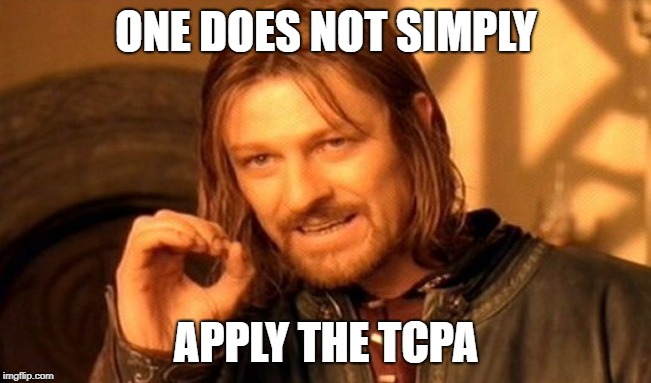 The much-maligned TCPA, even after amendments that significantly restricted its scope, is still a powerful tool in a proper case. In Austin v. Amundson:
The much-maligned TCPA, even after amendments that significantly restricted its scope, is still a powerful tool in a proper case. In Austin v. Amundson:
- The TCPA applied to the communications at issue because “TCPA case law is clear that criminal acts are matters of public concern”;
- Malice, a necessary element of the plaintiff’s reputational claims, was not established by clear and convincing evidence; particularly when a key police report “‘advised’ the police department the parties had ‘… ongoing civil issues since 2016′”;
- As to other claims, falsity was not established when, among other matters, a police department did not more than close a case without further action, making “no finding that [the party] did not drive recklessly”;
- And a third set of claims, about allegedly derogatory statement to customers, were “[m]issing … the facts of when, where, and what was said”.
The Fifth Court thus reversed the denial of the defendants’ motion to dismiss, rendered judgment on the claims that it addressed, and remanded for consideration of fee-related matters as potentially required by the statute. No. 05-22-00066-CV (Nov. 15, 2022) (mem. op.).
The Fifth Court found that the trial court exceeded the bounds of permissible discovery under the TCPA in In re Quality Cleaning Plus:
Although the trial court acknowledged at the August 29 hearing that it could order limited discovery under the TCPA, there is no indication in the record that the trial court considered the limitations of Section 27.006(b) when it entered its post-August 24 discovery orders. Instead, the trial court reasoned that Section 27.006(b) did not apply because the discovery was outstanding and due before Quality Cleaning filed its TCPA motion and, thus, the discovery was not suspended. But the statute does not provide such an exception.
No. 05-22-01053-CV (Oct. 31, 2022) (mem. op.) (emphasis added).
“When a TCPA movant’s step-one burden and a nonmovant’s TCPA exemption are both disputed, we conclude that a court may consider a nonmovant’s exemption first, if it chooses to do so.” Temple v. Cortez Law Firm, No. 05-21-00367-CV (June 3, 2022).
The TCPA (still) did not apply to a discovery-related motion in Sorkin v. P.T. Atlas Mfg., notwithstanding procedural differences from prior Fifth Court precedent:
The matter before us is in a procedurally different posture than Misko in that P.T. Atlas did not bring his complaints predicated on discovery abuse in the Harris County Lawsuit where the discovery was being conducted. … Had P.T. Atlas instead filed a petition in intervention in the Harris County Lawsuit to challenge the alleged discovery abuse, our Misko opinion would support the denial of a TCPA motion to dismiss and would be consistent with the rationale in both Misko and Dow Jones. Likewise, here, while the reason for this lawsuit––abusive discovery–– arose in the context of the Harris County Lawsuit, this suit itself does not attack any of the substantive claims in the Harris County Lawsuit nor is the suit based on, or in response to, any of the substantive allegations in that suit.
No. 05-21-00657-CV (March 16, 2022) (mem. op.).
 The threshold question in Ruff v. Ruff was the timeliness of a TCPA motion to dismiss:
The threshold question in Ruff v. Ruff was the timeliness of a TCPA motion to dismiss:
“Mike argues that Suzann’s earlier petitions sought relief based on a suit to quiet title while in the seventh amended petition, ‘[s]he abandoned the quiet title claim and now seeks declaratory relief interpreting the [probate court judgment]. The seventh petition is a new legal action seeking new declaratory relief.'”
After examining a redlined comparison of the relevant pleadings, the Fifth Court found the motion untimely, concluding that “[t]his is essentially the same claim re-alleged repeatedly over two years in the subsequent amendments to the petition,” and that as a result:
“Mike has not identified on appeal any allegations in the seventh amended petition that added a new party, alleged new essential facts to support previously asserted claims, or asserted new legal claims or theories involving different elements than the claims or theories previously asserted.”
No. 05-21-00157-CV (mem. op.) applying Montelongo v. Abrea, 622 S.W.3d 290 (Tex. 2021)).
 In Soo v. Pletta, the Fifth Court affirmed the denial of a TCPA motion, finding an insufficient connection between the allegedly protected activity and the lawsuit, and noting:
In Soo v. Pletta, the Fifth Court affirmed the denial of a TCPA motion, finding an insufficient connection between the allegedly protected activity and the lawsuit, and noting:
- Case law about the previous version of the TCPA, which required a showing that claims were “based on, related to, or in response to” protected activity, has less relevance under the amended version that asks whether a claim is “based on or in respone to” the activity; and
- “The Soos’s argument that Trust’s claims are “based on or in response to” TCPA-protected activity simply because that activity occurred before Trust filed its lawsuit amounts to a post hoc ergo propter hoc logical fallacy and does not satisfy the Soos’s step one burden” under the TCPA.
No. 05-20-00876 (Jan. 14, 2022) (mem. op.).
 A delay in holding a hearing on a TCPA motion (again) led to denial of appellate review in Vertical Holdings LLC v. LocatorX, Inc.:
A delay in holding a hearing on a TCPA motion (again) led to denial of appellate review in Vertical Holdings LLC v. LocatorX, Inc.:
“… [W]e find no information in the record to support Vertical Holdings’s suggestion that the hearing delay was caused by the COVID-19 pandemic. We also find no information in the record to suggest the trial court canceled the October 5, 2020 hearing or suspended any TCPA deadlines as a result of any of the supreme court’s pandemic-related emergency orders.
Notably missing from the record is any information about the trial court’s docket conditions on or near October 5, 2020, the date of the original hearing setting. Also missing is any information showing good cause to reset the hearing, an agreement between the parties to reset the hearing within section 27.004’s deadlines, an extension to allow discovery under TCPA section 27.006(b), or any other efforts by Vertical Holdings to have the motion heard within section 27.004’s deadlines.”
No. 05-21-00469-CV (Jan. 14, 2022) (mem. op.).
The key facts of In re Woods Capital Enterprises are as follows:
- Woods Capital sued DXC Technology in Collin County for breach of a contract to sell real property, and filed a lis pendens.
- DXC moved to dismiss under the TCPA and to expunge the lis pendens.
- The trial court expunged the lis pendens, after which DXC (a) tabled its fee application related to the lis pendens, given the pending TCPA motion, (b) argued and won the TCPA motion, and (c) sought fees in connection with the TCPA motion.
- The trial court then dismissed Woods Capital’s case, awarded fees to DXC, and included a “Mother Hubbard” clause in that order.
- Woods Capital appealed and obtained reversal of the TCPA ruling in DXC’s favor. Upon remand, Woods Capital nonsuited its claims and filed a new suit in Dallas County.
- In the Collin County case, DXC filed a counterclaim for its fees associated with the lis pendens ruling.
Woods Capital filed a plea to the jurisdiction against the counterclaim, noting its nonsuit. The Collin County trial court denied the plea and the Fifth Court granted mandamus relief against that ruling, holding that the nonsuit – coupled with the Mother Hubbard clause in the earlier order – extinguished the earlier lawsuit. “Had DXC believed the trial court erred by denying its lis pendens fee application, it needed to file a cross appeal in the TCPA case.” No. 05-21-00188-CV (Nov. 8, 2021) (mem. op.).
The panel opinion in Dickson v. The Afiya Center affirmed the denial of a TCPA motion to dismiss as to allegedly defamatory statements related to a municipal anti-abortion ordinance. The full court has now denied en banc review, over a dissent focusing on the historically contentious nature of public discussion on the subject.
The original incarnation of the TCPA was widely criticized for broad language that included a wide range of civil litigation. After its amendment, opinions such as CBS Stations Group v. Burns remind that, at its core, the TCPA serves an important role in protecting First Amendment rights; here, a local TV station’s coverage of a bank robbery:
“We conclude Burns failed to present clear and specific evidence that CBS knew or should have known that publication of the photograph in connection with the report on the robbery was false. Further, there is no evidence supporting a conclusion that a photograph obtained from a law enforcement agency after a public–information-act request using the correct name and birth date of the individual would warn a reasonably prudent broadcaster of its defamatory potential.”
No. 05-21-00042-CV (Sept. 27, 2021) (mem. op.). Of special note, the panel includes Justice Ken Molberg, author of Dyer v. Medoc Health Services, 573 S.W.3d 418 (Tex. App.–Dallas 2019, pet denied), which thoroughly reviewed and significantly limited the TCPA’s protection of the right of association, compared to some earlier opinions by other courts of appeal on the topic.
 These facts led to a problem with the timeliness of the notice of appeal in Jordan Kahn Music Co. v. Threlkeld:
These facts led to a problem with the timeliness of the notice of appeal in Jordan Kahn Music Co. v. Threlkeld:
- January 19, 2021. Trial court signs interlocutory order granting a TCPA motion to dismiss, and orally invites the movant to submit a fee affidavit;
- February 28, 2021. Trial court signs a final judgment, including a fee award.
- Nonmovant timely moved for a new trial.
- May 24, 2021. Notice of appeal filed.
The Fifth Court held that the February 28 judgment was a “trial court order on a motion to dismiss … under section 27.003” under the relevant statute, and thus triggered the 20-day deadline for perfecting an accelerated appeal–for which, the filing of a motion for new trial does not extend the perfection deadline is it otherwise would. No. 05-21-00381-CV (Sept. 29, 2021) (mem. op.).
The panel majority in Winstead PC v. Moore concluded that the TCPA applied to two of three tort claims by a client against his legal counsel, holding that they implicated the firm’s right of petition, while the third did not have a sufficient connection to the exercise of that right. No. 05-20-00050-CV (Aug. 20, 2021). A dissent would have applied the TCPA to all claims and, from there, concluded that the plaintiff failed to meet its burden.
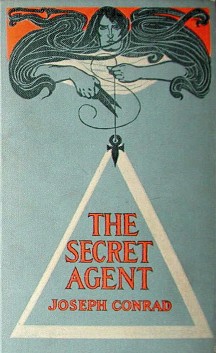 In Snell v. Ellis, the Fifth Court noted – but did not resolve – the issue whether an agent’s speech on behalf of a principal can
In Snell v. Ellis, the Fifth Court noted – but did not resolve – the issue whether an agent’s speech on behalf of a principal can  implicate the TCPA. It did observe, however, that: “The plain text of section 27.005(b), long-standing rules regarding agency, and our decisions in other contexts suggest the answer is ‘no’ ….” No. 05-20-00642-CV (April 5, 2021) (mem. op.)
implicate the TCPA. It did observe, however, that: “The plain text of section 27.005(b), long-standing rules regarding agency, and our decisions in other contexts suggest the answer is ‘no’ ….” No. 05-20-00642-CV (April 5, 2021) (mem. op.)
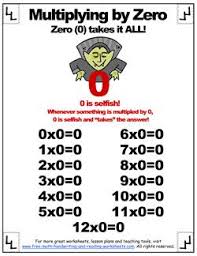 Allegations about a great deal of activity that does not implicate the TCPA,’s protection of the right of association, do not implicate the TCPA’s protection of the right of association: “Tiffany first contends that Rupert’s allegations of conspiracy and joint enterprise meet this standard because they involve the disposition of Marie’s estate (including certain community property) and ‘two decades of publicly filed lawsuits.’ She cites no authority for the proposition that the estate proceedings of a private individual involve public or citizen’s participation, and we have found no such authority. Likewise, we find no authority supporting the notion that extended litigation between and among these parties becomes a matter of public or citizen’s participation merely because of its volume or allegedly repetitive nature. On the contrary, the allegations made by Rupert are of an intensely personal nature, and they address actions involving the personal relationships within the Pollard family.” Pollard v. Pollard, No. 05-19-00240-CV (Feb. 8, 2021) (mem. op.).
Allegations about a great deal of activity that does not implicate the TCPA,’s protection of the right of association, do not implicate the TCPA’s protection of the right of association: “Tiffany first contends that Rupert’s allegations of conspiracy and joint enterprise meet this standard because they involve the disposition of Marie’s estate (including certain community property) and ‘two decades of publicly filed lawsuits.’ She cites no authority for the proposition that the estate proceedings of a private individual involve public or citizen’s participation, and we have found no such authority. Likewise, we find no authority supporting the notion that extended litigation between and among these parties becomes a matter of public or citizen’s participation merely because of its volume or allegedly repetitive nature. On the contrary, the allegations made by Rupert are of an intensely personal nature, and they address actions involving the personal relationships within the Pollard family.” Pollard v. Pollard, No. 05-19-00240-CV (Feb. 8, 2021) (mem. op.).
A language change in the amended TCPA does not change the analytical framework for a basic practical point: “Before the 2019 amendments, the Texas Supreme Court held that the plaintiff’s petition is the best and all-sufficient evidence of the nature of the action for step one purposes. Hersh v. Tatum, 526 S.W.3d 462, 467 (Tex. 2017). The court said, ‘When it is clear from the plaintiff’s pleadings that the action is covered by the Act, the defendant need show no more.’ Id. We see no reason to conclude that the legislature intended to overrule Hersh when it changed the step one test from ‘shows by a preponderance of the evidence’ to “demonstrates.’ ‘Demonstrate’ means to ‘clearly show the existence or truth of (something) by giving proof or evidence.'” Brenner v. Centurion Logistics, No. 05-20-00308-CV (Dec. 10, 2020) (mem. op.).
 Vaughn-Riley v. Patterson illustrates the operation of the new, narrower definition of “matter of public concern” in the TCPA after last year’s amendments. The Fifth Court affirmed the denial of a TCPA motion in a dispute about the production of a play: “At the heart of this matter is whether the actors breached their contracts to perform the second Tyler show and the cause of the second Tyler show’s cancellation. Vaughn’s actions and communications regarding one isolated performance that did not go on as scheduled is simply not a subject of legitimate news interest; that is, a subject of general interest and of value and concern to the public.” In particular, the Court noted legislative history showing that the amendment was derived from a definition in Snyder v. Phelps, 562 U.S. 443 (2011). It rejected an argument that the performed in question was a “limited public figure,” although that argument could be available in a future case. No. 05-20-00236-CV (Dec. 2, 2020) (mem. op.).
Vaughn-Riley v. Patterson illustrates the operation of the new, narrower definition of “matter of public concern” in the TCPA after last year’s amendments. The Fifth Court affirmed the denial of a TCPA motion in a dispute about the production of a play: “At the heart of this matter is whether the actors breached their contracts to perform the second Tyler show and the cause of the second Tyler show’s cancellation. Vaughn’s actions and communications regarding one isolated performance that did not go on as scheduled is simply not a subject of legitimate news interest; that is, a subject of general interest and of value and concern to the public.” In particular, the Court noted legislative history showing that the amendment was derived from a definition in Snyder v. Phelps, 562 U.S. 443 (2011). It rejected an argument that the performed in question was a “limited public figure,” although that argument could be available in a future case. No. 05-20-00236-CV (Dec. 2, 2020) (mem. op.).
 In Merrill v. Curry, the Fifth Court reversed the grant of a TCPA motion to dismiss, and then declined to address a ruling on a partial Rule 91a motion that had also been appealed: “[W[e first consider the propriety and efficiency of addressing interlocutory issues after we have reversed the judgment dismissing the case. We have not located a case in which a party pursued, and a court addressed, the denial of a partial 91a motion under these circumstances. But this situation is analogous to the analysis employed when a party seeks review of a cross motion for partial summary judgment. As courts have explained, the denial of a motion for summary judgment is generally not appealable, except when both parties move for summary judgment and the trial court grants one and denies the other. In such a case, an appellate court reviews both motions and renders the judgment the trial court should have rendered. But, when a party moves for only partial summary judgment, the exception does not apply.” No. 05-19-01229-CV (Nov. 5, 2020) (mem. op.) (citations omitted, emphasis added).
In Merrill v. Curry, the Fifth Court reversed the grant of a TCPA motion to dismiss, and then declined to address a ruling on a partial Rule 91a motion that had also been appealed: “[W[e first consider the propriety and efficiency of addressing interlocutory issues after we have reversed the judgment dismissing the case. We have not located a case in which a party pursued, and a court addressed, the denial of a partial 91a motion under these circumstances. But this situation is analogous to the analysis employed when a party seeks review of a cross motion for partial summary judgment. As courts have explained, the denial of a motion for summary judgment is generally not appealable, except when both parties move for summary judgment and the trial court grants one and denies the other. In such a case, an appellate court reviews both motions and renders the judgment the trial court should have rendered. But, when a party moves for only partial summary judgment, the exception does not apply.” No. 05-19-01229-CV (Nov. 5, 2020) (mem. op.) (citations omitted, emphasis added).
 “Jordan ignores a key component required for the exercise of a right to petition, namely, a communication under [TCPRC] section 27.001(4). … Contrary to Jordan’s argument, a nonmovant’s reference to a judicial proceeding in a petition does not necessarily establish that a movant has engaged in any communication constituting an exercise of a right to petition under section 27.001(4) or that the nonmovant’s claims are based on such communication.” Jordan v. JP Bent Tree, No. 05-19-01263-CV (Oct. 19, 2020).
“Jordan ignores a key component required for the exercise of a right to petition, namely, a communication under [TCPRC] section 27.001(4). … Contrary to Jordan’s argument, a nonmovant’s reference to a judicial proceeding in a petition does not necessarily establish that a movant has engaged in any communication constituting an exercise of a right to petition under section 27.001(4) or that the nonmovant’s claims are based on such communication.” Jordan v. JP Bent Tree, No. 05-19-01263-CV (Oct. 19, 2020).
 In Marble Ridge Capital v. Neiman-Marcus Group, the Fifth Court affirmed the denial of a TCPA motion in a defamation action brought by Neiman-Marcus, pre-bankruptcy, against an investment fund. Among other holdings, the Court thoroughly surveyed Texas law about the judicial-communications privilege and held: “Based on this record, we conclude Marble Ridge did not satisfy its burden under section 27.005(d) regarding the judicial-communications privilege because Marble Ridge was not actually contemplating and giving serious consideration to a judicial proceeding when making its September 18, September 21, and September 25, 2018 communications.” No. No. 05-19-00443-CV (Sept. 30, 2020) (emphasis added). LPHS represented Neiman-Marcus in this matter.
In Marble Ridge Capital v. Neiman-Marcus Group, the Fifth Court affirmed the denial of a TCPA motion in a defamation action brought by Neiman-Marcus, pre-bankruptcy, against an investment fund. Among other holdings, the Court thoroughly surveyed Texas law about the judicial-communications privilege and held: “Based on this record, we conclude Marble Ridge did not satisfy its burden under section 27.005(d) regarding the judicial-communications privilege because Marble Ridge was not actually contemplating and giving serious consideration to a judicial proceeding when making its September 18, September 21, and September 25, 2018 communications.” No. No. 05-19-00443-CV (Sept. 30, 2020) (emphasis added). LPHS represented Neiman-Marcus in this matter.
 The movants in GN Ventures v. Stanley won their argument that the TCPA applied to a motion in a dispute about arbitrability: “[E]ven though a request for a pre-arbitration temporary restraining order and temporary injunction merely seeks equitable remedies, and is not an independent cause of action, such a request is a ‘filing that requests . . . equitable relief’ and, therefore, a ‘legal action’ as defined by section 27.001(6). And because in this case, there is no underlying cause of action and appellants’ TCPA motion solely sought dismissal of the request for temporary restraining order and temporary injunction, that requested injunctive relief is the ‘claim’ the elements of which the Stanley affiliates must demonstrate a prima facie case by clear and specific evidence in the second step of the TCPA analysis we discuss below.” (citations omitted). Despite that win, however, they lost their motion because the nonmovants established a prima facie case for their requested injunctive relief. No. 05-19-01076-CV (Oct. 2, 2020).
The movants in GN Ventures v. Stanley won their argument that the TCPA applied to a motion in a dispute about arbitrability: “[E]ven though a request for a pre-arbitration temporary restraining order and temporary injunction merely seeks equitable remedies, and is not an independent cause of action, such a request is a ‘filing that requests . . . equitable relief’ and, therefore, a ‘legal action’ as defined by section 27.001(6). And because in this case, there is no underlying cause of action and appellants’ TCPA motion solely sought dismissal of the request for temporary restraining order and temporary injunction, that requested injunctive relief is the ‘claim’ the elements of which the Stanley affiliates must demonstrate a prima facie case by clear and specific evidence in the second step of the TCPA analysis we discuss below.” (citations omitted). Despite that win, however, they lost their motion because the nonmovants established a prima facie case for their requested injunctive relief. No. 05-19-01076-CV (Oct. 2, 2020).
The TCPA applied in Keel Recovery v. Tri County Adjusters because the suit was based on a police report–an act of petition. As to the prima facie case, the Fifth Court held:
“[W]hile Arion may have had a fiduciary duty to her employer, TCA, that does not mean she owed any fiduciary duty to Peters as owner of TCA. Arguably, to the extent Arion owed TCA a fiduciary duty, that duty was fulfilled by reporting Peters’ criminal activity that could subject TCA to negative consequences.”
No. 05-19-00686-CV (Sept. 4, 2020) (mem. op.).
Palladium Metal Recycling v. 5G Metals reminds: “Interlocutory appeals are only available from orders denying TCPA motions, not from orders granting them.” As to that granted motion, the Court also observed in a footnote: “Notably, in the event the trial court’s ruling has not become final and appealable, the trial court retains jurisdiction to vacate its order regarding St. Charles should it decide to do so.” No. 05-19-00482-CV (July 28, 2020) (mem. op.)
 On the facts of California Commercial Investment Group v. Herrington, “even
On the facts of California Commercial Investment Group v. Herrington, “even
though the charges were dropped, [Defendant’s] statements made to police are protected as an exercise of the right to petition and of free speech.” The Fifth Court went on to find that no prima facie case was made on the plaintiff’s malicious-prosecution and defamation claims, and reversed the trial court’s denial of the defendant’s TCPA motion to dismiss. No. 05-19-00805-CV (July 8, 2020) (mem. op.).
UDF v. Megatel illustrates the Fifth Court’s approach to “public concern” as defined by the TCPA: “[W]hile the alleged communications may have been motivated by a climate of public scrutiny created by criticisms of the UDF Parties’ business practices, the communications at issue did not in any way address the substance of either those criticisms or the resulting public scrutiny. Instead, they addressed only the termination of contracts . . . as a means for the UDF Parties to achieve liquidity which is not a matter ‘of political, social, or other concern to the community.'” No. 05-19-00647-CV (May 29, 2020) (mem. op.) (citation omitted).
Amend v. J.C. Penney Corp. declined to apply the TCPA to a noncompete case. As to the right of association the Court observed: ‘Amend testified he is “responsible for Lowe’s’ website and app sales,” “responsible for online merchandising,” and responsible for “driving sales.” In his position, he works with others on “product management,” “analytics,” “digital technology,” and “strategy and business development,” and he makes recommendations to other Lowe’s employees about these subjects. The evidence does not show that these responsibilities necessarily involve public communications. Instead the responsibilities appear to involve communications between Amend and other Lowe’s employees.’ No. 05-19-00723 (March 31, 2020) (mem. op.) (emphasis added) (LPHS represented the successful appellee in this case.)
 Barnes sued Kinser; in response, Kinser moved for sanctions. Barnes then moved to dismiss the sanctions request under the TCPA. The Fifth Court, citing a series of opinions involving analogous filings, held: “The request for sanctions here, like the similar request in Misko, is not a request for legal or equitable relief and not a legal action as defined by the TCPA.” Barnes v. Kinser, No. 05-19-00481-CV (April 7, 2020).
Barnes sued Kinser; in response, Kinser moved for sanctions. Barnes then moved to dismiss the sanctions request under the TCPA. The Fifth Court, citing a series of opinions involving analogous filings, held: “The request for sanctions here, like the similar request in Misko, is not a request for legal or equitable relief and not a legal action as defined by the TCPA.” Barnes v. Kinser, No. 05-19-00481-CV (April 7, 2020).
 The business fallout from the failed bus-camera program at the now-defunct Dallas County Schools (“DCS”) led to litigation about the related intellectual property, which led to a TCPA motion filed by a bidder on the technology during the winding up of DCS. The Fifth Court found that the (pre-September-2019) TCPA did not apply, emphasizing its free-speech prong but also finding no protected right of association or petition:
The business fallout from the failed bus-camera program at the now-defunct Dallas County Schools (“DCS”) led to litigation about the related intellectual property, which led to a TCPA motion filed by a bidder on the technology during the winding up of DCS. The Fifth Court found that the (pre-September-2019) TCPA did not apply, emphasizing its free-speech prong but also finding no protected right of association or petition:
Although the BusStop Technology provides safety measures for children who ride school buses, the benefits of the technology were not the basis of the communications. ATS’s communications with DCS and the Dissolution Committee, including requesting and receiving information about the technology, obtaining prototypes of the technology, and ATS’s actual bid, were private communications about a private, commercial transaction. Similarly, although DCS and the Dissolution Committee are governmental entities, the transactions and associated communications were private financial transactions that did not impact the public; the transactions did not require public approval, and ATS did not argue that the governmental status of DCS and the Dissolution Committee brought the communications into the realm of public concern.
BusPatrol America LLC v. American Traffic Solutions, Inc., No. 05-18-00920-CV (March 24, 2020) (mem. op.) (emphasis added).
 On rehearing of Goldberg v. EMR (USA Holdings) Inc., the Fifth Court implemented the Texas Supreme Court’s December 2019 Creative Oil opinion and found that relevant communications did not adequately implicated issues of public concern to receive the TCPA’s protection: ‘The e-mails were communications because they were made by Defendants and submitted to the purchasers and suppliers. The communications were “made in connection with” “an issue related to . . . a good, product, or service in the marketplace,” scrap metal. However, all these communications were private communications between private parties about purely private economic matters. Therefore, these communications were not “made in connection with a matter of public concern” under the TCPA.’ No. 05-18-00261-CV (Jan. 23, 2020) (on motion for rehearing) (emphasis added). The Court reached a similar conclusion about other such business tort claims in Gehrke v. Merritt Hawkins & Assocs., LLC, No. 05-19-00026-CV (Jan. 17, 2020) (mem. op.)
On rehearing of Goldberg v. EMR (USA Holdings) Inc., the Fifth Court implemented the Texas Supreme Court’s December 2019 Creative Oil opinion and found that relevant communications did not adequately implicated issues of public concern to receive the TCPA’s protection: ‘The e-mails were communications because they were made by Defendants and submitted to the purchasers and suppliers. The communications were “made in connection with” “an issue related to . . . a good, product, or service in the marketplace,” scrap metal. However, all these communications were private communications between private parties about purely private economic matters. Therefore, these communications were not “made in connection with a matter of public concern” under the TCPA.’ No. 05-18-00261-CV (Jan. 23, 2020) (on motion for rehearing) (emphasis added). The Court reached a similar conclusion about other such business tort claims in Gehrke v. Merritt Hawkins & Assocs., LLC, No. 05-19-00026-CV (Jan. 17, 2020) (mem. op.)
 The current state of play about the TCPA in the Fifth Court is well-illustrated by Rouzier v. BioTE Medical, LLC, No. 05-19-00277-CV (Nov. 22, 2019) (mem. op.) (applying, inter alia, Forget About It, Inc. v. BoiTE Medical, LLC, No. 05-18-01290-CV, 2019 WL 3798180 (Tex. App.—Dallas Aug. 13, 2019, pet. filed). It addresses the application of the TCPA’s protection of speech and association rights to business-related communications in the healthcare industry, as well as the application of the commercial-speech exemption in that setting.
The current state of play about the TCPA in the Fifth Court is well-illustrated by Rouzier v. BioTE Medical, LLC, No. 05-19-00277-CV (Nov. 22, 2019) (mem. op.) (applying, inter alia, Forget About It, Inc. v. BoiTE Medical, LLC, No. 05-18-01290-CV, 2019 WL 3798180 (Tex. App.—Dallas Aug. 13, 2019, pet. filed). It addresses the application of the TCPA’s protection of speech and association rights to business-related communications in the healthcare industry, as well as the application of the commercial-speech exemption in that setting.
 Simmons sued Cook for securities fraud; Cook move to dismiss under the TCPA, and the Fifth Court found that Cook failed to show that Simmons’s lawsuit was “in response to” any potentially-protected communication: “Cook does not dispute that Simmons’s pleadings do not mention Cook’s interview with the Texas Rangers or make any reference to Paxton or Servergy. Nor is there any evidence that Simmons was involved in any way with the Texas Rangers’s investigation. According to Cook, his interview was about Paxton, not Simmons. Simmons’s allegations are that Cook made misrepresentations in the sale of securities. ‘Any activities [by Cook] that are not a factual predicate for [Simmons’s] claims are not pertinent to our inquiry regarding whether the TCPA applies.'” Cook v. Simmons, No. 05-19-00091-CV (Nov. 12, 2019) (mem. op.) (citation omitted).
Simmons sued Cook for securities fraud; Cook move to dismiss under the TCPA, and the Fifth Court found that Cook failed to show that Simmons’s lawsuit was “in response to” any potentially-protected communication: “Cook does not dispute that Simmons’s pleadings do not mention Cook’s interview with the Texas Rangers or make any reference to Paxton or Servergy. Nor is there any evidence that Simmons was involved in any way with the Texas Rangers’s investigation. According to Cook, his interview was about Paxton, not Simmons. Simmons’s allegations are that Cook made misrepresentations in the sale of securities. ‘Any activities [by Cook] that are not a factual predicate for [Simmons’s] claims are not pertinent to our inquiry regarding whether the TCPA applies.'” Cook v. Simmons, No. 05-19-00091-CV (Nov. 12, 2019) (mem. op.) (citation omitted).
 The Fifth Court affirmed a TCPA dismissal in Kappos v. Baxter: “As part of his representation of his clients, Baxter stated in a motion filed in the federal litigation that there was a judgment in the underlying California state-court litigation. Whether the statements were wrong, fraudulent, or part of a conspiracy to defraud Kappos does not affect the applicability of the defense of attorney immunity. Kappos was not Baxter’s client. Therefore, following Youngkin, we conclude that Baxter is immune from Kappos’s suit based on his actions while representing his clients, including his statements in court filings that there was a judgment in the California state-court litigation. We conclude Baxter established by a preponderance of the evidence the elements of the defense of attorney immunity.” No. 05-19-00020-CV (Oct. 30, 2019) (mem. op.)
The Fifth Court affirmed a TCPA dismissal in Kappos v. Baxter: “As part of his representation of his clients, Baxter stated in a motion filed in the federal litigation that there was a judgment in the underlying California state-court litigation. Whether the statements were wrong, fraudulent, or part of a conspiracy to defraud Kappos does not affect the applicability of the defense of attorney immunity. Kappos was not Baxter’s client. Therefore, following Youngkin, we conclude that Baxter is immune from Kappos’s suit based on his actions while representing his clients, including his statements in court filings that there was a judgment in the California state-court litigation. We conclude Baxter established by a preponderance of the evidence the elements of the defense of attorney immunity.” No. 05-19-00020-CV (Oct. 30, 2019) (mem. op.)
The petitioner in a TCPA dispute argued that it was controlled by a previous panel opinion called Hartley, and the Fifth Court agreed. It summarized the applicable rules, very similar to the Fifth Circuit’s “rule of orderliness” –
The real parties in interest argue that Hartley is distinguishable because they present arguments and authorities that were not discussed in this Court’s opinion in Hartley. However, those arguments do not distinguish Hartley. If we agreed with those arguments, we would have to conclude Hartley was wrongly decided and must be overruled. We follow our own precedent. Dyer v. Medoc Health Servs., LLC, 573 S.W.3d 418, 427 (Tex. App.—Dallas 2019, pet. denied). “We may not overrule a prior panel decision of this Court absent an intervening change in the law by the legislature, a higher court, or this Court sitting en banc.” MobileVision Imaging Servs., L.L.C. v. LifeCare Hosps. of N. Tex., L.P., 260 S.W.3d 561, 566 (Tex. App.—Dallas 2008, no pet.). Accordingly, we adhere to our decision in Hartley.
No. 05-19-01016-CV (Sept. 23, 2019) (mem. op.).
 Can a trial court sidestep the TCPA’s timely-hearing requirement? “This mandamus proceeding presents the question whether the trial court has the discretion to deny a TCPA movant’s reasonable requests for a timely hearing and set the motion for hearing after the last possible date that the TCPA permits. We hold that the trial court lacks such discretion because the TCPA requires the trial court to hold a timely hearing when the movant acts with reasonable diligence to obtain such a hearing. We further hold that the TCPA movant in this situation lacks an adequate remedy by appeal because he forfeits TCPA relief, including a right to an interlocutory appeal, if a timely hearing is not held.” In re Herbert, No. 05-19-00126-CV (Sept. 19, 2019).
Can a trial court sidestep the TCPA’s timely-hearing requirement? “This mandamus proceeding presents the question whether the trial court has the discretion to deny a TCPA movant’s reasonable requests for a timely hearing and set the motion for hearing after the last possible date that the TCPA permits. We hold that the trial court lacks such discretion because the TCPA requires the trial court to hold a timely hearing when the movant acts with reasonable diligence to obtain such a hearing. We further hold that the TCPA movant in this situation lacks an adequate remedy by appeal because he forfeits TCPA relief, including a right to an interlocutory appeal, if a timely hearing is not held.” In re Herbert, No. 05-19-00126-CV (Sept. 19, 2019).
 In Duncan v. Acius Group, the panel agreed that the TCPA can reach statements about the topic of animal cruelty, but differed on the connection of a particular statement to that topic. Justice Partida-Kipness’s dissent argued: “I do not disagree that an allegation of animal cruelty can be a matter of public concern, the context and situation surrounding Morris-Duncan’s purported statement about Maxwell does not support such a conclusion here. It is clear from the context of her statements about Maxwell, that Morris-Duncan’s alleged comments were not made out of a concern for the welfare and safety of the animals under Maxwell’s care,but rather out of a desire –to paint Maxwell ina bad light and to call his character into question after ACIUS terminated her husband’s employment.” (emphasis added). The panel also reaffirmed that a nonsuit does not moot a TCPA motion. No. 05-18-01432-CV (Sept. 13, 2019) (mem. op.)
In Duncan v. Acius Group, the panel agreed that the TCPA can reach statements about the topic of animal cruelty, but differed on the connection of a particular statement to that topic. Justice Partida-Kipness’s dissent argued: “I do not disagree that an allegation of animal cruelty can be a matter of public concern, the context and situation surrounding Morris-Duncan’s purported statement about Maxwell does not support such a conclusion here. It is clear from the context of her statements about Maxwell, that Morris-Duncan’s alleged comments were not made out of a concern for the welfare and safety of the animals under Maxwell’s care,but rather out of a desire –to paint Maxwell ina bad light and to call his character into question after ACIUS terminated her husband’s employment.” (emphasis added). The panel also reaffirmed that a nonsuit does not moot a TCPA motion. No. 05-18-01432-CV (Sept. 13, 2019) (mem. op.)
 The Fifth Court reaffirmed its treatment of an important procedural issue about the TCPA in Bass v. United Devel. Funding: “[F]ollowing our precedent, we only consider the pleadings and evidence in favor of the plaintiff’s case when determining whether it established the requisite prima facie proof. It is not this Court’s province to consider and weigh evidence submitted by Hayman to contradict UDF’s evidence.” No. 05-18-00752-CV (Aug. 21, 2019) (mem. op.):
The Fifth Court reaffirmed its treatment of an important procedural issue about the TCPA in Bass v. United Devel. Funding: “[F]ollowing our precedent, we only consider the pleadings and evidence in favor of the plaintiff’s case when determining whether it established the requisite prima facie proof. It is not this Court’s province to consider and weigh evidence submitted by Hayman to contradict UDF’s evidence.” No. 05-18-00752-CV (Aug. 21, 2019) (mem. op.):
 The law firm of Riggs & Ray and the State Fair of Texas have been involved in a long-running dispute about the firm’s “public information” requests to the Fair. In the latest chapter, Riggs & Ray, P.C. v. State of Fair of Texas, the Fifth Court reversed the TCPA dismissal of a declaratory-judgment lawsuit brought by R&R against the Fair about the Fair’s public-inforaation obligations, finding that the Fair had not established a sufficient connection to the rights of petition or speech. A dissent said that the majority required too tight a connection to protected activity, noting: “The predicate communication here is SFT’s thrice judicially communicated (right to
The law firm of Riggs & Ray and the State Fair of Texas have been involved in a long-running dispute about the firm’s “public information” requests to the Fair. In the latest chapter, Riggs & Ray, P.C. v. State of Fair of Texas, the Fifth Court reversed the TCPA dismissal of a declaratory-judgment lawsuit brought by R&R against the Fair about the Fair’s public-inforaation obligations, finding that the Fair had not established a sufficient connection to the rights of petition or speech. A dissent said that the majority required too tight a connection to protected activity, noting: “The predicate communication here is SFT’s thrice judicially communicated (right to
petition) statement that it is not required to provide information to R&R regarding the City of Dallas’s financial relations with SFT (right of free speech regarding a matter of public concern),” and cautioning that the majority’s approach would weaken protection against SLAPP suits, “a category of cases at the heart of why the legislature enacted the TCPA in the first place.” No. 05-17-00973-CV (Sept. 5, 2019) (mem. op.)
 A highly-practical part of Texas procedure appears in Section 132.001 of the Civil Practice and Remedies Code, which says that an unsworn declaration may be used in place of an affidavit in most situations. That provision details the form that such a declaration should take. Following Hays Street Bridge Restoration Group v. City of San Antonio, 570 S.W.3d 697 (Tex. 2019), the Fifth Court found a declaration inadequate when it omitted the declarant’s birthdate and other specified information. Goldberg v. EMR (USA Holdings) Inc., No. 05-18-00261-CV (Aug. 22, 2019). (This case’s other holdings about the scope of the TCPA were significantly revised on rehearing in January 2020, as described in another blog post.)
A highly-practical part of Texas procedure appears in Section 132.001 of the Civil Practice and Remedies Code, which says that an unsworn declaration may be used in place of an affidavit in most situations. That provision details the form that such a declaration should take. Following Hays Street Bridge Restoration Group v. City of San Antonio, 570 S.W.3d 697 (Tex. 2019), the Fifth Court found a declaration inadequate when it omitted the declarant’s birthdate and other specified information. Goldberg v. EMR (USA Holdings) Inc., No. 05-18-00261-CV (Aug. 22, 2019). (This case’s other holdings about the scope of the TCPA were significantly revised on rehearing in January 2020, as described in another blog post.)
 In an artful scramble to avoid Dyer v Medoc Health Services, 573 S.W.3d 418, 424 (Tex. App.–Dallas 2019, pet. denied), the movant abandoned the argument that the relevant business communications dealt with “a matter of public concern,” and instead focused on whether the communications were in connection with “a good, product, or service in the marketplace” — namely, workplace complaints about the plaintiff. The panel majority was not persuaded, concluding that “[t]he allegations against Damonte clearly are not based on, related to, or in response to conversations Damonte purportedly had with employees about problems they were having with the company,” and that “nothing in Hallmark’s lawsuit suggests are predicated on anything other than Damonte’s alleged involvement in a scheme to misappropriate and use Hallmark’s confidential information.” A concurrence cautioned that “[t]he majority opinion should not be construed to mean the content of the communication at issue must itself be defamatory or actionable” to be actionable. No. 05-18-00874-CV (July 12, 2019) (mem. op.)
In an artful scramble to avoid Dyer v Medoc Health Services, 573 S.W.3d 418, 424 (Tex. App.–Dallas 2019, pet. denied), the movant abandoned the argument that the relevant business communications dealt with “a matter of public concern,” and instead focused on whether the communications were in connection with “a good, product, or service in the marketplace” — namely, workplace complaints about the plaintiff. The panel majority was not persuaded, concluding that “[t]he allegations against Damonte clearly are not based on, related to, or in response to conversations Damonte purportedly had with employees about problems they were having with the company,” and that “nothing in Hallmark’s lawsuit suggests are predicated on anything other than Damonte’s alleged involvement in a scheme to misappropriate and use Hallmark’s confidential information.” A concurrence cautioned that “[t]he majority opinion should not be construed to mean the content of the communication at issue must itself be defamatory or actionable” to be actionable. No. 05-18-00874-CV (July 12, 2019) (mem. op.)
On June 28, the Texas Supreme Court denied the petition for review in Dyer v. Medoc Health Services, 573 S.W.3d 418 (Tex. App.–Dallas 2019), soldifying the foundation for several recent opinions from the Fifth Court that have limited the reach of the TCPA.
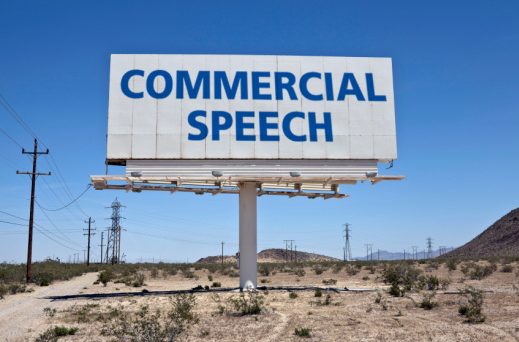 In Clean Energy v. Trillium Transportation Fuels, No. 05-18-01228-CV (July 9, 2019) (mem. op.), the Fifth Court applied the “commercial speech” exemption to communications made by Clean Energy, reasoning: “Clean Energy sent unsolicited emails to Trillium’s customers, indicated Trillium’s prices were too high, and attempted to meet with Trillium’s customers to ‘present our renewable CNG offering and support services’ and discuss ‘what we could do today.’ The fact that the emails do not provide specific details about Clean Energy’s pricing or business proposal does not mean the emails are not about Clean Energy’s goods and services. Because part of Clean Energy’s communications involves its goods and services, [Dickens v. Jason C. Webster, P.C., No. 05-17-00423-CV, 2018 WL 6839568 (Tex. App.–Dallas Dec. 31, 2018, no pet.) (mem. op.)] is distinguishable and does not control the outcome under these facts.” (LPCH represents Clean Energy in this matter.)
In Clean Energy v. Trillium Transportation Fuels, No. 05-18-01228-CV (July 9, 2019) (mem. op.), the Fifth Court applied the “commercial speech” exemption to communications made by Clean Energy, reasoning: “Clean Energy sent unsolicited emails to Trillium’s customers, indicated Trillium’s prices were too high, and attempted to meet with Trillium’s customers to ‘present our renewable CNG offering and support services’ and discuss ‘what we could do today.’ The fact that the emails do not provide specific details about Clean Energy’s pricing or business proposal does not mean the emails are not about Clean Energy’s goods and services. Because part of Clean Energy’s communications involves its goods and services, [Dickens v. Jason C. Webster, P.C., No. 05-17-00423-CV, 2018 WL 6839568 (Tex. App.–Dallas Dec. 31, 2018, no pet.) (mem. op.)] is distinguishable and does not control the outcome under these facts.” (LPCH represents Clean Energy in this matter.)
 Perlman v. EKLS Firestopping & Construction is the latest opinion from the Fifth Court that affirms the denial of a TCPA motion to dismiss, when the communications and associations at issue were fundamentally private and business-related. The appellee sought an award of fees for a frivolous motion, but the Court reminded: “[Appellee], however, did not file a notice of appeal, which is required to alter a trial court’s judgment or other appealable order. Under [Tex. R. App. P.] 25.1(c), we may not grant a party who does not file a notice of appeal ‘more favorable relief than did the trial court except for just cause . . . .” No. 05-18-00971-CV (June 28, 2019).
Perlman v. EKLS Firestopping & Construction is the latest opinion from the Fifth Court that affirms the denial of a TCPA motion to dismiss, when the communications and associations at issue were fundamentally private and business-related. The appellee sought an award of fees for a frivolous motion, but the Court reminded: “[Appellee], however, did not file a notice of appeal, which is required to alter a trial court’s judgment or other appealable order. Under [Tex. R. App. P.] 25.1(c), we may not grant a party who does not file a notice of appeal ‘more favorable relief than did the trial court except for just cause . . . .” No. 05-18-00971-CV (June 28, 2019).
 Conditionally granting mandamus relief from this order by the Fifth Court (a “lift-stay” order in a TCPA appeal), in In re Geomet Recycling, the Texas Supreme Court held:
Conditionally granting mandamus relief from this order by the Fifth Court (a “lift-stay” order in a TCPA appeal), in In re Geomet Recycling, the Texas Supreme Court held:
“[T]o the extent EMR faced irreparable harm, it had an avenue available to it by which a court could provide a remedy without violating the statutory stay. It did not pursue that remedy but instead asked the court of appeals to lift the stay in violation of [CPRC] section 51.014(b). EMR’s choice of an unsuited procedural mechanism does not create a constitutional problem we must address. And to the extent EMR did not face irreparable harm but simply wanted a hearing on the trial-court motions that had been pending when Geomet’s appeal triggered the stay, that is exactly what [CPRC] section 51.014(b) prohibits.”
It also observed: “Whether . . . an order under [TRAP] 29.3 referring a motion to the trial court for findings and recommendations would violate the statutory stay ‘of all trial court proceedings’ is a question the parties have not briefed and that we need not decide.” No. 18-0443 (June 14, 2019).
In Lei v. Natural Polymer Int’l Corp., the Fifth Court affirmed the denial of a TCPA motion (and then some) in a trade-secrets dispute about the making of “natural pet treats,” holding:
- Association. Under Dyer v. Medoc Health Services, while another appeal district might have a different view, under Dallas precedent the plaintiff failed to invoke the TCPA’s protection of assocation rights;
- Speech. “We cannot conclude that these alleged ‘communications’ are tangentially related to a matter of public concern simply because the proprietary and confidential information at issue belonged to a company in the business of selling pet treats that promote health ‘or because the alleged tortfeasors hoped to profit from their conduct.’”’
- Petition. [T]o construe the TCPA such that appellants exercised a ‘right to petition’ based on their deposition testimony . . . ‘is an absurd result that would not further the purpose of the TCPA to curb strategic lawsuits against public participation.’” (applying Miller Weisbrod, LLP v. Llamas-Soforo, 511 S.W.3d 181, 192–93 (Tex. App.—El Paso 2014, no pet.); and
- Award of fees. It was not an abuse of discretion to find the TCPA motion frivolous, when at an earlier temporary-injunction hearing, “[t]he trial court had already heard evidence supporting NPIC’s pleaded causes of action at the time appellants filed their motion to dismiss.”
No. 05-18-01041-CV (June 21, 2019).
 A steady stream of cases about the scope of the TCPA (as well as the third dissent of 2019 by Justice Whitehill) continued in Erdner v. Highland Park Emergency Center. The appeal was from the denial of a TCPA motion about the alleged usurpation of the opportunity to build an emergency-care facility in Fort Worth; the majority (Justice Molberg, joined by Justice Reichek) affirmed, holding:
A steady stream of cases about the scope of the TCPA (as well as the third dissent of 2019 by Justice Whitehill) continued in Erdner v. Highland Park Emergency Center. The appeal was from the denial of a TCPA motion about the alleged usurpation of the opportunity to build an emergency-care facility in Fort Worth; the majority (Justice Molberg, joined by Justice Reichek) affirmed, holding:
- Association. “The communications between Erdner and the Arizona investors were private communications relating to establishing a business . . . [and] did not involve public or citizen’s participation . . . .”
- Speech. The majority rejected the dissent’s “wispy” approach to the term “related to” in the TCPA, reasoning: “The fact that the communications could result in healthcare service being offered to the public at some location at some point in the future is not enough to bring them within the scope of the TCPA.”
The dissent joined the majority’s conclusion about the right of association, based on Fifth Court precedent, but differed as to interpretation of the phrase “related to”: “[D]iscussions about starting a new emergency room are at least tangentially related to the current and future health of people in the area and to the surrounding community’s well-being.” No. 05-18-00654-CV (May 22, 2019).
 The resolution of the TCPA motion in In re Hartley unfolded as follows:
The resolution of the TCPA motion in In re Hartley unfolded as follows:
- Radix Realty sued the Hartleys. Panchakarla the intervened on the side of Radix.
- The Hartleys moved to dismiss under the TCPA. The trial court had a hearing on that motion on February 18, 2019.
- The trial court granted the motion on February 22, well ahead of the March 20 statutory deadline.
- Panchakarla moved for a new trial on March 22.
- On May 6, 2019, the trial court vacated its February 22 order and issued a new order denying the Hartleys’ motion to dismiss.
The Hartleys sought a writ of mandamus against the May 6 rulings, and the Fifth Court agreed: “The trial court was statutorily prohibited from granting Panchakarla’s motion for reconsideration and for new trial more than thirty days after the hearing on the TCPA motion and, as such, the trial court’s May 6, 2019 order is void.” No. 05-19-00571-CV (May 24, 2019) (mem. op.)
 Applying Dyer v. Medoc Health Services LLC, No. 05-18-00472-CV (March 8, 2019), the Fifth Court declined to apply the TCPA to certain business-related communications, even though they related to the generally-important topic of health care. The Court also found that the TCPA’s commercial speech exemption applied to a DTPA counterclaim. Staff Care v. Eskridge Enterprises, No. 05-18-00732-CV (May 15, 2019) (mem. op.)
Applying Dyer v. Medoc Health Services LLC, No. 05-18-00472-CV (March 8, 2019), the Fifth Court declined to apply the TCPA to certain business-related communications, even though they related to the generally-important topic of health care. The Court also found that the TCPA’s commercial speech exemption applied to a DTPA counterclaim. Staff Care v. Eskridge Enterprises, No. 05-18-00732-CV (May 15, 2019) (mem. op.)
 Tactical Communications alleged that Krasnicki failed to make certain technical disclosures to it; Krasnicki moved to dismiss under the TCPA: But “Tactical did not allege any oral, written, audiovisual,or electronic communications inits claims against Krasnicki. The basis of Tactical’s claims against Krasnicki rests solely on its assertion that Krasnicki failed to communicate with Tactical.” (emphasis added) Accordingly, the Fifth Court affirmed denial of the motion with a straightforward observation: “[C]onstruing the definition of ‘communications’ to include non-communications would lead to an absurd result as nothing would be outside the scope of the TCPA.” Krasnicki v. Tactical Entertainment, LLC, No. 05-18-00463-CV (May 16, 2019).
Tactical Communications alleged that Krasnicki failed to make certain technical disclosures to it; Krasnicki moved to dismiss under the TCPA: But “Tactical did not allege any oral, written, audiovisual,or electronic communications inits claims against Krasnicki. The basis of Tactical’s claims against Krasnicki rests solely on its assertion that Krasnicki failed to communicate with Tactical.” (emphasis added) Accordingly, the Fifth Court affirmed denial of the motion with a straightforward observation: “[C]onstruing the definition of ‘communications’ to include non-communications would lead to an absurd result as nothing would be outside the scope of the TCPA.” Krasnicki v. Tactical Entertainment, LLC, No. 05-18-00463-CV (May 16, 2019).
 “We conclude the definition of ‘legal action’ in the TCPA does not encompass a motion for sanctions alleging discovery abuse by a party that is filed after, and in this case years after, the commencement of litigation. Further, construing the TCPA to apply to such a motion would open the floodgates to serial motions to dismiss during the pendency of litigation based on conduct ancillary to the substantive claims in the case.” Misko v. Johns, No. 05-18-00487-CV (May 1, 2019).
“We conclude the definition of ‘legal action’ in the TCPA does not encompass a motion for sanctions alleging discovery abuse by a party that is filed after, and in this case years after, the commencement of litigation. Further, construing the TCPA to apply to such a motion would open the floodgates to serial motions to dismiss during the pendency of litigation based on conduct ancillary to the substantive claims in the case.” Misko v. Johns, No. 05-18-00487-CV (May 1, 2019).
 A significantly limited new version of the TCPA has passed the Texas House; a similar version is still pending in the Senate.The bill addresses several aspects of the statute’s application in business cases.
A significantly limited new version of the TCPA has passed the Texas House; a similar version is still pending in the Senate.The bill addresses several aspects of the statute’s application in business cases.
 The TCPA says: “If a legal action is based on, relates to, or is in response to a party’s exercise of the right of free speech, right to petition, or right of association, that party may file a motion to dismiss the legal action.” Encore Enterprises, Inc. v. Shetty involved a Sabine Pilot claim in which the plaintiff alleged wrongful termination after raising concerns about tax issues. The Fifth Court affirmed the denial of the defendant corporation’s motion to dismiss, observing: “Here, Encore’s motion to dismiss did not argue that Shetty’s lawsuit is based on, relates to, or is in response to Encore’s communications about Shetty. Rather, Encore argued that Shetty’s lawsuit is based on Shetty’s communications to Encore about allegedly illegal activities that Encore maintains are matters of public concern.” No. 05-18-00511-CV (April 29, 2019) (mem. op.) (emphasis added).
The TCPA says: “If a legal action is based on, relates to, or is in response to a party’s exercise of the right of free speech, right to petition, or right of association, that party may file a motion to dismiss the legal action.” Encore Enterprises, Inc. v. Shetty involved a Sabine Pilot claim in which the plaintiff alleged wrongful termination after raising concerns about tax issues. The Fifth Court affirmed the denial of the defendant corporation’s motion to dismiss, observing: “Here, Encore’s motion to dismiss did not argue that Shetty’s lawsuit is based on, relates to, or is in response to Encore’s communications about Shetty. Rather, Encore argued that Shetty’s lawsuit is based on Shetty’s communications to Encore about allegedly illegal activities that Encore maintains are matters of public concern.” No. 05-18-00511-CV (April 29, 2019) (mem. op.) (emphasis added).
 The Texas anti-SLAPP statute has generated an enormous amount of litigation and commentary, especially with the Legislature in session and actively considering amendments. Interestingly, one of the most successful defendants to invoke this statute is President Trump, who used it last year in California federal court to obtain dismissal of a defamation claim about the above Tweet, as well as a substantial award of attorneys’ fees. The district court’s opinion is interesting reading on the merits, as well on choice-of-law and the Ninth Circuit’s treatment of the underlying Erie issue.
The Texas anti-SLAPP statute has generated an enormous amount of litigation and commentary, especially with the Legislature in session and actively considering amendments. Interestingly, one of the most successful defendants to invoke this statute is President Trump, who used it last year in California federal court to obtain dismissal of a defamation claim about the above Tweet, as well as a substantial award of attorneys’ fees. The district court’s opinion is interesting reading on the merits, as well on choice-of-law and the Ninth Circuit’s treatment of the underlying Erie issue.
Dyer v. Medoc Health Services is 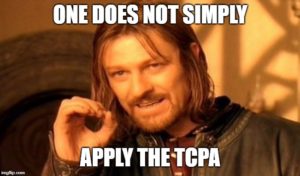 a TCPA opinion by Justice Molberg, a prominent member of the newly-elected “Slate of Eight.” It declines to apply the TCPA in a commercial trade-secrets dispute, holding, inter alia:
a TCPA opinion by Justice Molberg, a prominent member of the newly-elected “Slate of Eight.” It declines to apply the TCPA in a commercial trade-secrets dispute, holding, inter alia:
Association. “Because the text messages between Basiti and Dyer were private communications related to an alleged conspiracy between the two men and did not involve public or citizen’s participation, it would be “illogical” to apply the TCPA to those communications”
Speech. “We cannot conclude communications discussing allegedly tortious conduct are tangentially related to a matter of public concern simply because the proprietary and confidential information that was to be misappropriated belonged to a company in
the healthcare industry or because the alleged tortfeasors hoped to profit from their conduct.”
Petition. “However, even assuming Dyer’s actions, and the communications relating to those actions, were “petitioning” activities as defined by the TCPA, appellants failed to establish appellees’ claims were based on, related to, or in response to any communications between Dyer and any other person about the FBI investigation or on Dyer’s providing appellees’ proprietary software and confidential information to the FBI.”
No. 05-18-00472-CV (March 8, 2019). The Texas Supreme Court has assertively advanced a broad reading of the TCPA, including multiple reversals of the Fifth Court; the handling of any petitions for review in this case will be of great interest to the commercial-litigation bar.
 While litigants are understandably enthusiastic about the automatic right of appeal of the denial of a TCPA motion, the courts of appeal are understandably reluctant to expand that right beyond what the statute allows. In Pope-Nixon v. Howard, Ms. Pope-Nixon sued Mr. Howard and Mr. Green. Howard won his TCPA motion to dismiss and and an appeal ensued. The court of appeals found that it lacked jurisdiction, noting that “the trial court’s order left pending the damages issue and Green had not moved for dismissal . . . .” No. 05-18-01215-CV (Feb. 25, 2019) (mem. op.)
While litigants are understandably enthusiastic about the automatic right of appeal of the denial of a TCPA motion, the courts of appeal are understandably reluctant to expand that right beyond what the statute allows. In Pope-Nixon v. Howard, Ms. Pope-Nixon sued Mr. Howard and Mr. Green. Howard won his TCPA motion to dismiss and and an appeal ensued. The court of appeals found that it lacked jurisdiction, noting that “the trial court’s order left pending the damages issue and Green had not moved for dismissal . . . .” No. 05-18-01215-CV (Feb. 25, 2019) (mem. op.)
The much-watched Dallas case of Glassdoor Inc. v. Andra Group posed important questions about protection of anonymous speech online – here, posts on the popular job search website glassdoor.com – as well as the applicability of the TCPA to pre-suit discovery petitions under Tex. R. Civ. P. 202. The Texas Supreme Court, however, found that it “may not reach these issues . . . because the Rule 202 proceeding has been rendered moot by the fact that the petitioner’s potential claims against the anonymous speakers are now time-barred as a matter of law.” No. 17-0463 (Tex. Jan. 25, 2019). Accordingly, the Fifth Court’s opinion stands as the law on the matter in Dallas (as persuasive authority rather than precedent, as the Texas Supreme Court vacated both the trial and appellate rulings), under which a Rule 202 petition can proceed when the record supports a finding “that the likely benefit of allowing [petitioner] to take a deposition about two anonymous reviews on [respondent’s] website outweighed the burden or expense of the procedure.”
 I was on a CLE panel at the Belo today about the Texas anti-SLAPP statute with my partner Josh Sandler and Hon. Gena Slaughter of Dallas’s 191st District Court; here is a copy of our PowerPoint presentation.
I was on a CLE panel at the Belo today about the Texas anti-SLAPP statute with my partner Josh Sandler and Hon. Gena Slaughter of Dallas’s 191st District Court; here is a copy of our PowerPoint presentation.
 The ongoing geyser of TCPA opinions continues with Dickens v. Webster, a tortious interference case arising from a dispute among attorneys about a contingent fee agreement. It offers three points of broad interest:
The ongoing geyser of TCPA opinions continues with Dickens v. Webster, a tortious interference case arising from a dispute among attorneys about a contingent fee agreement. It offers three points of broad interest:
- The TCPA does not require that a statement be made to the public;
- For the “commercial speech” exemption to apply, the communications at issue must relate to the defendant’s services – not the plaintiff’s; and
- On page 15 of the opinion, a “road map” for establishing a prima facie case of tortious interference; here, the alleged substitution of one contract for another, accompanied by emails supporting the plaintiff’s version of events.
No. 05-17-00423-CV (Dec. 31, 2018) (mem. op)
 An important Dallas case about appropriate proof of damages under the TCPA was recently reversed by the Texas Supreme Court in S&S Emergency Training Solutions v. Elliott. That Court held: “Elliott’s pre-resignation letter and the affidavits of Vecchio and Cellio support, at minimum, rational inferences that (1) EMTS’s paramedic classes were profitable before Elliott’s disclosures of confidential information; (2) the disclosures were a cause of ACI’s terminating the consortium agreement; and (3) termination of the consortium agreement caused EMTS to lose the ability to conduct the profitable paramedic training classes. Thus, EMTS provided prima facie evidence that Elliott’s disclosures caused EMTS to lose profits. That evidence was sufficient to preclude dismissal of EMTS’s suit.” No. 17-0628 (Tex. Dec. 21, 2018) (citations omitted).
An important Dallas case about appropriate proof of damages under the TCPA was recently reversed by the Texas Supreme Court in S&S Emergency Training Solutions v. Elliott. That Court held: “Elliott’s pre-resignation letter and the affidavits of Vecchio and Cellio support, at minimum, rational inferences that (1) EMTS’s paramedic classes were profitable before Elliott’s disclosures of confidential information; (2) the disclosures were a cause of ACI’s terminating the consortium agreement; and (3) termination of the consortium agreement caused EMTS to lose the ability to conduct the profitable paramedic training classes. Thus, EMTS provided prima facie evidence that Elliott’s disclosures caused EMTS to lose profits. That evidence was sufficient to preclude dismissal of EMTS’s suit.” No. 17-0628 (Tex. Dec. 21, 2018) (citations omitted).
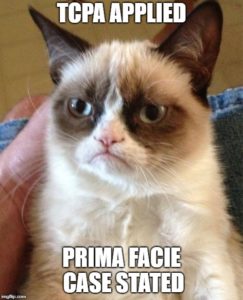 After a reversal and remand to the Fifth Court on whether the TCPA applied to Adams’s speech (it did), that Court examined in detail whether Starside had made a prima facie case of its claims. In particular: “As to Starside’s defamation claim based on the homepage of Adams’s blog and the statements in the March 18, 2015 email that Starside failed to comply with City ordinances when removing trees from the common area, we conclude Starside pleaded and submitted evidence establishing the ‘when, where, and what was said,’ the defamatory nature of the statements, and that the statements were defamatory per se.'” Adams v. Starside Custom Builders LLC, No. 05-15-01162-CV (Dec. 7, 2018).
After a reversal and remand to the Fifth Court on whether the TCPA applied to Adams’s speech (it did), that Court examined in detail whether Starside had made a prima facie case of its claims. In particular: “As to Starside’s defamation claim based on the homepage of Adams’s blog and the statements in the March 18, 2015 email that Starside failed to comply with City ordinances when removing trees from the common area, we conclude Starside pleaded and submitted evidence establishing the ‘when, where, and what was said,’ the defamatory nature of the statements, and that the statements were defamatory per se.'” Adams v. Starside Custom Builders LLC, No. 05-15-01162-CV (Dec. 7, 2018).
 While finding that a statement in a cease-and-desist letter fell within the scope of the TCPA, the Fifth Court found a failure to state an actionable claim in response to a TCPA dismissal motion. As to tortious interference, the plaintiff’s damages allegations fell short of Elliott v. S&S Emergency Training Solutions, Inc., No. 05-16-01373-CV, 2017 WL 2118787 (Tex. App.—Dallas May 16, 2017, pet. filed); as to the tort of “invasion of seclusion,” the allegations failed because “[s]everal courts, including our own, have consistently held that an intrusion upon seclusion claim fails without evidence of a physical intrusion or eavesdropping on another’s conversation with the aid of wiretaps, microphones, or spying.” Morales v. Barnes, No. 05-17-00316-CV (Dec. 29, 2017) (mem. op.)
While finding that a statement in a cease-and-desist letter fell within the scope of the TCPA, the Fifth Court found a failure to state an actionable claim in response to a TCPA dismissal motion. As to tortious interference, the plaintiff’s damages allegations fell short of Elliott v. S&S Emergency Training Solutions, Inc., No. 05-16-01373-CV, 2017 WL 2118787 (Tex. App.—Dallas May 16, 2017, pet. filed); as to the tort of “invasion of seclusion,” the allegations failed because “[s]everal courts, including our own, have consistently held that an intrusion upon seclusion claim fails without evidence of a physical intrusion or eavesdropping on another’s conversation with the aid of wiretaps, microphones, or spying.” Morales v. Barnes, No. 05-17-00316-CV (Dec. 29, 2017) (mem. op.)
 Securus sued GTL for defamation and business disparagement, alleging that two “Important Industry News Alert” emails from GTL misrepresented the status of certain patents. The Fifth Court reversed the denial of GTL’s anti-SLAPP motion, finding that Securus failed to show that the “commercial speech” exception to the statute applied, and that substance of the emails was either opinion, or too general to have led a reasonable person to confldue that they addressed “any particular facility or recipient.” As to the commercial speech exception, the Court expressly declined to follow a “four prong” test followed by Houston’s Fourteenth Court of Appeals in Newspaper Holdings, Inc. v. Crazy Hotel Assisted Living, Ltd., 416 S.W.3d 71 (Tex. App.–Houston [1st Dist.[ 2013, pet. denied), concluding that this test over-relied on a statute unique to California. Global Tel*Link v. Securus Corp.. Securus Corp., No. 05-16-01224-CV (July 31, 2017) (mem. op.)
Securus sued GTL for defamation and business disparagement, alleging that two “Important Industry News Alert” emails from GTL misrepresented the status of certain patents. The Fifth Court reversed the denial of GTL’s anti-SLAPP motion, finding that Securus failed to show that the “commercial speech” exception to the statute applied, and that substance of the emails was either opinion, or too general to have led a reasonable person to confldue that they addressed “any particular facility or recipient.” As to the commercial speech exception, the Court expressly declined to follow a “four prong” test followed by Houston’s Fourteenth Court of Appeals in Newspaper Holdings, Inc. v. Crazy Hotel Assisted Living, Ltd., 416 S.W.3d 71 (Tex. App.–Houston [1st Dist.[ 2013, pet. denied), concluding that this test over-relied on a statute unique to California. Global Tel*Link v. Securus Corp.. Securus Corp., No. 05-16-01224-CV (July 31, 2017) (mem. op.)
 Emergency Medical Training Services sued Sheila Elliott for breaching various non-disclosure obligations in her complaints to state regulators. Elliott moved to dismiss under the Texas anti-SLAPP statute; the district court denied her motion, and the Fifth Court reversed and remanded for dismissal of the case in her favor.
Emergency Medical Training Services sued Sheila Elliott for breaching various non-disclosure obligations in her complaints to state regulators. Elliott moved to dismiss under the Texas anti-SLAPP statute; the district court denied her motion, and the Fifth Court reversed and remanded for dismissal of the case in her favor.
The Court used a standard two-step analysis. As to the first step, Elliott met her burden to show that EMTS’s claim was based on her exercise of free speech rights – a matter, the Court ruled, that was not affected by whether she had entered an NDA. As to the second step, EMTS failed to meet its burden to establish a prima facie case fo each element of its contract claim, as its evidence of damage was too conclusory. Elliott v. S&S Emergency Training Solutions, Inc., No. 05-16-01373-CV (May 16, 2017) (mem. op.)
Jones sued a TV production company, alleging that he was shot at and received death threats as a result of his appearance (even t hough blurred and voice-altered) on “The First 48,” a show about homicide investigations. The company did not prevail on its motion to dismiss based on the Texas anti-SLAPP statute: “The plain language of section 27.010(c) excludes legal actions seeking recovery for bodily injury. . . . Mr. Jones’s negligence claim seeks to recover for the bodily injuries—four gunshot wounds—that he claims he sustained as a result of Kirkstall’s negligence in editing and producing its program. Without expressing any opinion on the merits of his claim, we conclude that Mr. Jones has shown that it is exempted from application of the TCPA.” Kirkstall Road Enterprises v. Jones, No. 05-16-00859-CV (April 27, 2017).
hough blurred and voice-altered) on “The First 48,” a show about homicide investigations. The company did not prevail on its motion to dismiss based on the Texas anti-SLAPP statute: “The plain language of section 27.010(c) excludes legal actions seeking recovery for bodily injury. . . . Mr. Jones’s negligence claim seeks to recover for the bodily injuries—four gunshot wounds—that he claims he sustained as a result of Kirkstall’s negligence in editing and producing its program. Without expressing any opinion on the merits of his claim, we conclude that Mr. Jones has shown that it is exempted from application of the TCPA.” Kirkstall Road Enterprises v. Jones, No. 05-16-00859-CV (April 27, 2017).
 The case of MacFarland v. Le-Vel Brands involved a blog post on the website “Lazy Man and Money,” which was critical of a multi-level marketing company that sells dietary supplements. The trial court denied the defendant’s motion to dismiss under the Texas anti-SLAPP statute and the Fifth Court reversed, finding: (1) the suit involved the blogger’s speech; (2) the “commercial speech” exception did not apply; and (3) the plain
The case of MacFarland v. Le-Vel Brands involved a blog post on the website “Lazy Man and Money,” which was critical of a multi-level marketing company that sells dietary supplements. The trial court denied the defendant’s motion to dismiss under the Texas anti-SLAPP statute and the Fifth Court reversed, finding: (1) the suit involved the blogger’s speech; (2) the “commercial speech” exception did not apply; and (3) the plain tiff could not establish damages for either business disparagement or defamation. (On that subject, compare the recent case from the Fifth Court of Glassdoor v. Andra Group, which did find sufficient evidence of damage.) The opinion carefully reviews the leading recent authorities on the scope of these provisions of the statute. The case was remanded for further proceedings, including consideration of the defendant’s attorneys’ fees and costs. No. 05-16-00672 (March 23, 2017) (mem. op.)
tiff could not establish damages for either business disparagement or defamation. (On that subject, compare the recent case from the Fifth Court of Glassdoor v. Andra Group, which did find sufficient evidence of damage.) The opinion carefully reviews the leading recent authorities on the scope of these provisions of the statute. The case was remanded for further proceedings, including consideration of the defendant’s attorneys’ fees and costs. No. 05-16-00672 (March 23, 2017) (mem. op.)
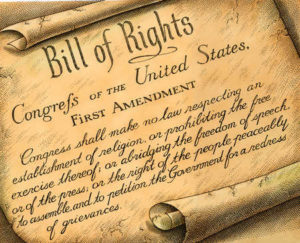 In Glassdoor Inc. v. Andra Group LP, the Fifth Court affirmed an order granting a Rule 202 petition about online reviews of a business as an employer, offering several pointers for the handling of such petitions:
In Glassdoor Inc. v. Andra Group LP, the Fifth Court affirmed an order granting a Rule 202 petition about online reviews of a business as an employer, offering several pointers for the handling of such petitions:
- The trial judge limited the scope of the examination to two posts, and specific items within them;
- The movant established its potential business disparagement damages with three affidavits about the effect of the posts on its recruiting;
- The statements at issue went beyond “hyperbole or mere personal opinion” to make specific “accusations of illegal conduct that are capable of being proved true or false”; and
- The First Amendment rights of the anonymous reviewers to speak anonymously “must be balanced against the right of others to hold accountable those who engage in speech not protected by the First Amendment.”
A “mirror image” anti-SLAPP motion was properly rejected for the same reasons that the Rule 202 petition was granted. No. 05-16-00189-CV (March 24, 2017) (mem. op.)
In D Magazine Partners LP v. Rosenthal, reviewing the work of the Dallas Court of Appeals in a high-profile anti-SLAPP case, the Texas Supreme Court observed about Wikipedia:
“Given the arguments both for and against reliance on Wikipedia, as well as the variety of ways in which the source may be utilized, a bright-line rule is untenable. Of the many concerns expressed about Wikipedia use, lack of reliability is paramount and may often preclude its use as a source of authority in opinions. At the least, we find it unlikely Wikipedia could suffice as the sole source of authority on an issue of any significance to a case. That said, Wikipedia can often be useful as a starting point for research purposes. In this case, for example, the cited Wikipedia page itself cited past newspaper and magazine articles that had used the term ‘welfare queen’ in various contexts and could help shed light on how a reasonable person could construe the term.”
But, as a matter of the relevant substantive law, and the nature of Wikipedia, t he Texas Supreme Court found overreliance on a Wikipedia entry when “the court of appeals utilized Wikipedia as its primary source to ascribe a specific, narrow definition to a single term that the court found significantly influenced the article’s gist. Essentially, the court used the Wikipedia definition as the lynchpin of its analysis on a critical issue. . . . ”
he Texas Supreme Court found overreliance on a Wikipedia entry when “the court of appeals utilized Wikipedia as its primary source to ascribe a specific, narrow definition to a single term that the court found significantly influenced the article’s gist. Essentially, the court used the Wikipedia definition as the lynchpin of its analysis on a critical issue. . . . ”
Accordingly, Dallas-area practitioners should pay special attention to these statements, if online resources such as Wikipedia play more than a general background role in a legal argument.
 Plaintiffs sued for libel, based on four articles in the Korea Town News (N.B. – Dallas has the largest Korean-American community in Texas). Unfortunately, the TCPA “anti-SLAPP” statute applied, because the articles dealt with “the proposed sale of an office building . . . for use as a community center, which would be purchased “in part with funds raised by the public.” And the statements at issue were not actionable, as they “the majority of these statements concern the value of the building . . . the appraisal value of the building, the purchase price, and its market value.” Accordingly, the Fifth Court affirmed the dismissal of Plaintiffs’ claim — and the resulting award of attorneys fees under the TCPA. Mansik & Young Plaza LLC v. K-Town Management LLC, No. 05-15-00353-CV (Aug. 15, 2016) (mem. op.)
Plaintiffs sued for libel, based on four articles in the Korea Town News (N.B. – Dallas has the largest Korean-American community in Texas). Unfortunately, the TCPA “anti-SLAPP” statute applied, because the articles dealt with “the proposed sale of an office building . . . for use as a community center, which would be purchased “in part with funds raised by the public.” And the statements at issue were not actionable, as they “the majority of these statements concern the value of the building . . . the appraisal value of the building, the purchase price, and its market value.” Accordingly, the Fifth Court affirmed the dismissal of Plaintiffs’ claim — and the resulting award of attorneys fees under the TCPA. Mansik & Young Plaza LLC v. K-Town Management LLC, No. 05-15-00353-CV (Aug. 15, 2016) (mem. op.)
anti-SLAPP happy court dismisses claims for defamation arising from judicial proceeding
July 11, 2016In Watson v. Hardman, the Dallas Court of Appeals reversed a trial court’s refusal to dismiss defamation claims under the Texas anti-SLAPP statute.
The facts were tragic. A car accident took the lives of a married couple, who both had children from prior marriages. The Hardmans, relatives of the husband, set up “go fund me” pages to benefit the surviving children. Watson, the father of one of the surviving children, filed a Rule 202 petition to investigate claims that the Hardmans had stolen some of the donations. The Hardmans then sued Watson for defamation for statements in the 202 petition and alleged rumors in the community suggesting the Hardmans stole donations. The trial court denied an anti-SLAPP motion to dismiss, which asserted that any alleged statements were protected as an exercise of the right to petition or right to free speech.
The Dallas Court of Appeals reversed, holding that allegations in the 202 Petition were the “exercise of the right to petition” because they were “a communication in or pertaining to … a judicial proceeding,” which are subject to an absolute privilege. The Court specifically rejected arguments that the statements in the judicial proceeding had to concern anything of public interest.
In addition, allegations outside of the 202 Petition were also protected “exercise of the right of free speech” because they related to community well-being, specifically the well-being of people who made donations and of the intended beneficiaries. The Dallas Court of Appeals remanded to the trial court for consideration of a motion by the Hardmans to conduct additional discovery relating to other statements outside of the 202 Petition pursuant to § 27.006(b). So the Hardmans may yet have the opportunity to discover and respond with a prima facie case for defamation showing when, where, and what was said, the defamatory nature of the statements, and how they damaged the Hardmans.
 In a companion to the high-profile libel case of Tatum v. Dallas Morning News, the Fifth Court addressed the “anti-SLAPP” dismissal of the Tatum’s suit against Julie Hersh, a book author who allegedly discussed the subject of the offending column with columnist Steve Blow. For purposes of the motion, the Court assumed that “Hersh admitted talking with Blow about suicide and secrecy in general, but . . . denied making the alleged statements that the Tatums based their claims on—statements about [their son’s] death and obituary that encouraged Blow to write critically about those facts.” Based on those facts, the Court reversed dismissal, finding that its holding in Pickens v. Cordia,
In a companion to the high-profile libel case of Tatum v. Dallas Morning News, the Fifth Court addressed the “anti-SLAPP” dismissal of the Tatum’s suit against Julie Hersh, a book author who allegedly discussed the subject of the offending column with columnist Steve Blow. For purposes of the motion, the Court assumed that “Hersh admitted talking with Blow about suicide and secrecy in general, but . . . denied making the alleged statements that the Tatums based their claims on—statements about [their son’s] death and obituary that encouraged Blow to write critically about those facts.” Based on those facts, the Court reversed dismissal, finding that its holding in Pickens v. Cordia, 433 S.W.3d 179 (Tex. App.–Dallas 2014, no pet.), controlled when “the defendant’s motion admits participating in a conversation generally but denies making the specific relevant statements in particular.” Tatum v. Hersh, No. 05-14-01318-CV (Dec. 30, 2015).
433 S.W.3d 179 (Tex. App.–Dallas 2014, no pet.), controlled when “the defendant’s motion admits participating in a conversation generally but denies making the specific relevant statements in particular.” Tatum v. Hersh, No. 05-14-01318-CV (Dec. 30, 2015).
 Tervita LLC unsuccessfully disputed Sutterfield’s workers compensation claim in a contested hearing; afterwards, Sutterfield sued Tervita for various torts relating to its handling of his claim. The trial court denied Tervita’s motion to dismiss under the new Texas anti-SLAPP statute. The Dallas Court of Appeals reversed as to Sutterfield’s claims based on Tervita’s participation in the agency hearing, concluding that those claims were based on Tervita’s exercise of its right to petition. It otherwise affirmed, concluding that Sutterfield’s claims about a hostile work environment and wrongful discharge “are based on Tervita’s actions and statements outside of the TDI-WC proceeding.” Tervita LLC v. Sutterfield, No. 05-15-00479-CV (Dec. 18, 2015).
Tervita LLC unsuccessfully disputed Sutterfield’s workers compensation claim in a contested hearing; afterwards, Sutterfield sued Tervita for various torts relating to its handling of his claim. The trial court denied Tervita’s motion to dismiss under the new Texas anti-SLAPP statute. The Dallas Court of Appeals reversed as to Sutterfield’s claims based on Tervita’s participation in the agency hearing, concluding that those claims were based on Tervita’s exercise of its right to petition. It otherwise affirmed, concluding that Sutterfield’s claims about a hostile work environment and wrongful discharge “are based on Tervita’s actions and statements outside of the TDI-WC proceeding.” Tervita LLC v. Sutterfield, No. 05-15-00479-CV (Dec. 18, 2015).
In 2013, D Magazine published an article that labeled Janay Bender Rosenthal as “The Park Cities Welfare Queen,” based on her receipt of benefits under the Supplemental Nutriotional Assistance Program. Rosenthal sued for libel, and the trial court denied the magazine’s anti-SLAPP motion to dismiss. The Court of Appeals affirmed, over the dissent of Justice Brown. The majority held that Rosenthal had established a prima facie case for defamation because the “gist” of the article was an accusation of welfare fraud, which the opinion backs up with a colorful history of the term “welfare queen.” Justice Brown disagreed, arguing that the article was a satirical critique of a welfare system “that allows a woman with a criminal history of theft, living in a million-dollar home, and taking advantage of the highly rated school system of a wealthy enclave, to collect food stamps.”
D Magazine Partners, L.P. v. Rosenthal (majority), No. 05-12-00951-CV
A Republican primary battle for the office of Kaufman County commissioner (precinct 2) resulted in a defamation claim against the challenger’s media consultant. It seems that two days before the election, a website went up that strongly implied the incumbent, Ray Clark, had intervened in multiple child molestation cases brought against his “nephew,” Stoney Adams. resulting in the charges being dismissed. A series of mailed-out fliers made similar allegations. In reality, Adams was only distantly related through a series of marriages on Clark’s wife’s side of the family, and Clark averred that he had never done anything to support or assist Adams in any criminal case. Based on those facts, the trial court denied the defendants’ motion to dismiss under the TCPA, finding that Clark had established a prima facie case for each element of his defamation claims. The Dallas Court of Appeals affirmed, rejecting the defendants’ argument that the statements were protected as “rhetorical hyperbole.” Similarly, the statements were not protected as non-actionable opinions just because they were attributed to Adams’ ex-wife, but were instead capable of being defamatory because they implied knowledge that Clark really had intervened in Adams’ child molestation cases. As for actual malice, the Court of Appeals credited Clark’s argument that the defendants had “carefully attempted to distance themselves” from the defamatory statements, which in turn demonstrated that they “entertained serious doubts” about them.
Campbell v. Clark, No. 05-14-01056-CV
With all the TCPA cases running through the appellate courts, it’s worth taking a quick look at one procedural issue. The question presented by way of motion to the Court of Appeals was whether the appellants were required to supersede the attorney fees awarded to the defendants in a judgment dismissing the plaintiffs’ business disparagement claims. The appellate court held that attorney fees are not damages, and therefore the trial court did not err in denying the defendants’ motion to raise the supersedeas amount to include the attorney fees.
Mansik & Young Plaza LLC v. K-Town Mgmt., LLC, No. 05-15-00353-CV
A nasty Zillow review of a real estate agent prompted a defamation lawsuit, which these days pretty much inevitably leads to a motion to dismiss under the Texas Citizens’ Participation Act. In this instance, the agent had listed the seller’s house as “temporarily off market” instead of “active.” The Collin County trial court denied the seller’s motion to dismiss, but the Dallas Court of Appeals reversed. The seller’s claim that the agent had listed the house as being off market for “over 100 days” was incorrect, but the Court held that the falsity of that statement was immaterial because the agent had actually listed the property that was for 64 days instead. The plaintiffs also failed to establish that listing the house as off market was in accordance with the seller’s instructions, as her complaint that she “did not want her property shown” was not the equivalent of asking it to be listed as “temporarily off market.” Finally, the plaintiffs could not base their defamation case on the seller’s statement that the agent was “incompetent, mentally unstable, or raging from rejection” because those were non-actionable statements of opinion. The Court therefore rendered judgment for the defendant and remanded for a determination of her costs and recoverable attorney fees.
Former GOP Senate candidate Chris Mapp sued the Dallas Morning News for defamation after it published an editorial stating Mapp had told the editorial board “that ranchers should be allowed to shoot on sight anyone illegally crossing the border on their land, referring to such people as ‘wetbacks,’ and called the president a ‘socialist son of a bitch.'” Mapp claimed that the “shoot on sight” comment had been taken out of context because he had actually said ranchers should be permitted to shoot when they were in “fear for their life” or in defense of property, the same as anybody else. The News filed a motion to dismiss under the TCPA, but the 30-day statutory period after the hearing passed without a ruling by the trial court. That caused the motion to be overruled by operation of law, and the newspaper perfected an interlocutory appeal. The trial court then issued an order granting the motion to dismiss, albeit outside the prescribed time period.
This raised two questions for the Dallas Court of Appeals: What was the effect of the late-issued dismissal order, and should the case have been dismissed on the merits in any event? As to the first question, the Court held that the untimely dismissal order was a nullity. On the merits, the Court held that Mapp (who was a public figure) had not met his prima facie burden of showing that the newspaper had published the allegedly defamatory statements with constitutional malice. Paraphrasing or deliberately altering another person’s words does not establish actual malice unless there is evidence the defendant misinterpreted the remarks on purpose or in circumstances so improbable that the mistake could only have been recklessly. The Court concluded that the newspaper’s paraphrase of the statements Mapp had made in his tape-recorded interview was a rational interpretation of what he had said, and Mapp had not submitted any evidence to contradict the reporter’s affidavit explaining his subjective intent. The Court of Appeals therefore concluded that the trial court had erred by allowing the motion to dismiss to be overruled by operation of law, rendered judgment that Mapp’s case be dismised, and remanded to the trial court for a determination of the DMN’s costs, fees, and other recoverable expenses.
The Dallas Morning News, Inc. v. Mapp, No. 05-14-00848-CV
Three of four defendants filed motions to dismiss under the Texas Citizens Participation Act, all of which were granted by the district court. The plaintiffs sought interlocutory review of those rulings, but the Dallas Court of Appeals concluded that it did not have jurisdiction to review the rulings. Because the claims against the fourth defendant were still pending, there was no final, appealable judgment in the case. Under the 2013 version of CPRC § 51.014(a)(12), only orders denying a TCPA motion to dismiss are subject to interlocutory appeal, and the current version of the TCPA itself only authorizes interlocutory appeals when the motion has been overruled by operation of law due to the trial court’s failure to rule within 30 days. The plaintiffs will therefore have to wait until final judgment before appealing the TCPA dismissals.
Horton v. Martin, No. 05-15-00015-CV
The Texas Citizens Participation Act is becoming a powerful tool for disposing of certain types of lawsuits at an early stage of litigation, but an opinion from the Dallas Court of Appeals recognizes two important limits to the TCPA’s scope. Travis Coleman sued his former employer, ExxonMobil Pipeline, and two former supervisors for defamation and related claims. Coleman contended that the defendants had lied about his alleged failure to measure the level of fluid in a chemical holding tank, which led to his dismissal. The trial court denied Exxon’s motion to dismiss under the TCPA, and the Court of Appeals affirmed.
The Court of Appeals first relied on the Texas Supreme Court’s recent holding in Lippincott v. Whisenhunt (4/25/15) to reject Coleman’s argument that the TCPA did not apply because the speech was purely private. Nevertheless, the Court held that the allegedly defamatory statements did not involve a “matter of public concern” because their contents related to Coleman’s private job performance, not health, safety, the environment, or Exxon’s economic interests. The fact that the potential consequences of Coleman’s alleged failure to check the tank included health, safety, environmental, and economic concerns was not enough to transform the statements into a matter of public concern. The Court also rejected Exxon’s argument that the TCPA applied on free association grounds, holding that communications made in the context of free association had to involve some sort of public or citizens’ participation to fall under the TCPA.
ExxonMobil Pipeline Co. v. Coleman, No. 05-14-00188-CV
Last summer, the Dallas Court of Appeals rendered judgment in favor of television reporter Brett Shipp on a motion to dismiss under the Texas Citizens Participation Act. The plaintiff in that case, Dr. Richard Malouf, is back in the Court of Appeals with another pair of defamation cases involving the TCPA. This time, Malouf and his wife sued AOL, Inc. and its reporter for publishing an allegedly defamatory story concerning a backyard water park being built while Malouf was “charged” with millions of dollars in Medicaid fraud. Malouf claimed that was defamatory because he had never been “charged” with fraud in any criminal proceeding.
Because the statements related to matters of public concern — namely, allegations of defrauding taxpayers and the provision of dental services to the public — the TCPA shifted the burden to the Maloufs to establish a prima facie case for each element of the defamation claim by clear and specific evidence. The Court of Appeals held that they had failed to do so. Because the defendants were acting as members of the media, the Maloufs had to prove that the statements were actually false. The Court of Appeals held that the words “charged” and “stolen’ did not improperly suggest criminal charges or activity when Malouf had been sued under civil law for the alleged conduct several times. Therefore, a person of ordinary intelligence would not perceive the article’s claims to be more damaging to Malouf’s reputation merely because the article omitted to distinguish between civil and criminal proceedings. The Court of Appeals reversed and rendered in favor of AOL, affirmed dismissal as to the reporter, and remanded to the trial court for determination of AOL’s attorney fees and expenses.
AOL, Inc. v. Malouf, No. 05-13-01637-CV
The Texas Citizens’ Participation Act continues to be a powerful tool in certain types of commercial cases. In this instance, the publisher of Petroleum News Bakken managed to obtain and affirm a judgment of dismissal and attorney fees in a business disparagement and tortious interference case. The dispute arose out of a newspaper article that stated no records could be found for wells that Breitling Oil & Gas claimed to have drilled in North Dakota. The publisher moved to dismiss under the TCPA, which shifted the burden to the burden to the plaintiff to come forward with prima facie evidence of each element of its claims. Breitling responded with a notice of nonsuit, but that didn’t stop the trial court from moving forward with the hearing and awarding the defendant $88,444.58 in attorney fees and expenses. The Court of Appeals affirmed, holding that the nonsuit did not moot the pending motion to dismiss because the defendant had already made a “pending claim for affirmative relief” through its request for attorney fees and sanctions. The Court also rejected Breitling’s argument that the attorney fees should have been tried to a jury, noting that the record did not show that Breitling ever objected to the trial court making findings on the reasonableness of the fees awarded.
Breitling Oil & Gas Corp. v. Petroleum Newspapers of Alaska, LLC, No. 05-14-00299-CV
A trio of worked-up horse breeders managed to Facebook-rant their way into a colorful defamation lawsuit, which the Dallas Court of Appeals has now permitted to proceed as to one of the two counterclaim defendants. Appellants Jane McCurley Backes and Tracy Johns sued Appellee Karen Misko for tortious interference. Misko counterclaimed against Johns for libel and against Backes for conspiracy to libel. The opinion quotes extensively from the women’s online postings, the pettiness of which will be no surprise to anyone familiar with the Internet. Misko eventually unfriended Backes and Johns, the latter of whom then posted a thinly-disguised query whether anyone had ever known someone with Munchausen Syndrome by Proxy. Misko’s daughter had long been a victim of health issues, and other posters saw Johns’ post as an attack on Misko. That post served as the basis for Misko’s libel claim. The trial court denied Johns and Backes’ motions to dismiss under the Texas Citizens Participation Act.
The Court of Appeals held that Johns and Backes both met their initial burden of demonstrating that the claims against them were based on their rights to free speech and association, respectively. That shifted the burden to Misko to come forward with clear and specific evidence establishing a prima facie case of each element of her claims. The Court of Appeals held that Misko had indeed met that burden with respect to her libel claim against Johns, but not as to the conspiracy claim against Backes. Because Misko had not come forward with clear and specific evidence of a meeting of the minds between Backes and Johns, the Court rendered judgment dismissing the civil conspiracy claim and remanded the case to the trial court for consideration of an award of attorney fees and costs.
Backes v. Misko, No 05-14-0566-CV
Attorney Baltasar Cruz sued for libel against the operators of the Burnt Orange Report, which published a statement that Cruz had been “thrown out three times, finally by the police, of an Elizabeth Edwards book signing event in Dallas several years ago.” The defendants moved to dismiss on anti-SLAPP grounds. The trial court granted the motion and awarded the defendants their attorney fees. The Court of Appeals affirmed the dismissal of the case, but reversed on the award of attorney fees.
Cruz raised a remarkable 121 issues for appellate review, taking up 25 pages of non-word count briefing. The Court of Appeals did not find that lack of conciseness persuasive — see Tex. R. App. P. 38.1(f) — nor did it care for the absence of headings, divisions, or groupings in the brief’s 69 pages of argument. The Court also noted that the brief lacked legal authority and failed to identify the evidentiary objections Cruz was seeking to vindicate on appeal. As a result, the Court deemed many of Cruz’s “multifarious” issues to be waived. On the merits of the anti-SLAPP motion, the Court quickly disposed of Cruz’s claim that the statement was not a “matter of public concern” because he was a candidate for judicial office at the time the blog post was published and a candidate’s character is relevant to his qualification for public office. Cruz also could not establish that the statement was published with malice just because the defendants had not been present at the book signing incident, while the defendants averred they had relied on several sources for their account.
However, the Court of Appeals vacated an award of $158,521.50 in attorney fees to one group of defendants because they had not actually “incurred” those fees. Since their attorneys had taken the case pro bono, the clients were not personally responsible for payment of the claimed fees. However, the Court sustained a separate fee award of $31,783.75 to another defendant, holding that there was evidence showing that party was personally liable for those fees.
Cruz v. Van Sickle, No. 05-13000191-CV
A trial court that dismisses a lawsuit after a motion made under the Texas Citizens Participation Act “shall award to the moving party . . . reasonable attorney’s fees . . . incurred in defending against the legal action as justice and equity may require.” Tex. Civ. Prac. & Rem. Code § 27.009(a)(1). In this case, the trial court signed its order on March 6 granting the defendant’s motion to dismiss the lawsuit, then followed it up on April 14 with an order awarding defendant $15,616 in attorney fees and sanctioning the plaintiff another $15,000. The plaintiff claimed that the April 14 award was a nullity because the March 6 order was a final judgment. The Court of Appeals disagreed, first order did not purport to dispose of the defendant’s claim for fees and costs, and both the court and the parties recognized that there had not been a final judgment because they continued to litigate the additional issues. The Court of Appeals went on to rule on several other issues, concluding among other things that the plaintiff had waived any complaint about the trial court’s failure to timely hold a hearing on the motion to dismiss by failing to object in the trial court; that the statements attributed to the defendant were not capable of being defamatory; and that the plaintiff had not pointed to any evidence of damages to support its tortious interference claim. The judgment was therefore affirmed.
American Heritage Capital LP v. Gonzalez, No. 05-12-0892-CV
Television reporter Brett Shipp was sued for defamation by Dr. Richard Malouf, founder of the All Smiles Dental Center. Shipp broadcast a story on allegations of Medicaid fraud involving Malouf, and closed by reporting that Malouf “has yet to comment on the allegations but filed for bankruptcy and is in the process of divesting his once impressive empire.” Malouf alleged that statement was defamatory because it was All Smiles Dental Center that filed for bankruptcy, not Malouf personally. Shipp filed a plea to the jurisdiction and a motion to dismiss under the Texas Citizens Participation Act. The trial court denied both the plea and the motion, and Shipp took the matters up on interlocutory review.
The Court of Appeals affirmed the denial of the plea to the jurisdiction, but reversed and rendered based on on the TCPA. The plea to the jurisdiction claimed that the county court at law was without jurisdiction because it would deny Shipp the right to a 12-person jury. The Court quickly disposed of that issue, citing its own case law establishing that the size of the available jury does not negate subject matter jurisdiction that has otherwise been properly conferred on a court. As to the TCPA, the Court held that Shipp had met his initial burden of showing that the lawsuit arose out of his exercise of the right to free speech because the subject matter of his report as a whole — not just the statement about the bankruptcy filing — was made in connection with a matter of public concern. That shifted the burden to Malouf to come forward with a prima facie case, based on “clear and specific evidence,” for each element of his defamation claim. Malouf argued that a false accusation of personal bankruptcy was defamation per se, which would have given rise to a presumption of damages. The Court of Appeals disagreed, holding that it was not defamation per se because it did not “touch Malouf in a way that is harmful to one engaged in the profession of dentistry.” Without any other clear and specific evidence of damages, the Court held that the motion to dismiss under the TCPA should have been granted.
Shipp v. Malouf, No. 05-13-01080-CV
The Texas Citizens Participation Act continues to be a fruitful source of appellate activity. In this instance, the Court of Appeals has reversed the trial court’s order denying a motion to dismiss in a case arising out of a bad review on Angie’s List. Barbara Young hired Perennial Properties to construct an outdoor living space at her home, but Young claimed that Perennial failed to perform its work as required. McKinney Lumber Company then filed a lien against Young’s property for $9,779 in lumber that Perennial had failed to pay for. After the lumber company sued everyone involved, Young wrote up her experience in an online review, giving Perennial an overall grade of “F” and describing Perennial’s owners as incompetent crooks. Those owners then intervened in the lawsuit in order to sue Young and her attorney for defamation and intentional infliction of emotional distress.
The Court of Appeals first held that Young had met her initial burden of showing that the online review was an exercise of her right to free speech because it was a communication made to the public in connection with a good, product, or service. That brought it within the scope of the TCPA and shifted the burden to Perennial’s owners to establish by clear and specific evidence a prima facie case for each element of their claims. That they failed to do, according to the Court of Appeals. The defamation claim failed because the owners had not provided any evidence that the allegedly false statements were defamatory (as opposed to non-actionable opinions) or that Young had been negligent in making them. The intentional infliction of emotional distress claim failed because that cause of action is only a “gap-filler” tort, and there were no different or distinguishing facts from the defamation claim to permit it to proceed separately. The Court of Appeals therefore dismissed both claims and remanded the case for further proceedings under the TCPA, presumably to consider an award of attorney fees to Young.
Young v. Krantz, No. 05-13-00853-CV
If “blogger” sounds like an unusual pastime for the son of an oil-and-gas billionaire, this colorful case may be the one for you. T. Boone Pickens and several of his children sued Michael Pickens. Michael is T. Boone’s son and a recovering drug addict who has chronicled his life and his recovery in his blog, “5 Days in Connecticut” (which is now closed to uninvited readers). The blog has not been very kind to the other members of Michael’s family, which led them to sue for invasion of privacy, defamation, and intentional infliction of emotional distress. Michael moved to dismiss based on the Texas Citizens Participation Act, our version of the “anti-SLAPP” laws that have been enacted around the country in recent years. The trial court denied the motion to dismiss, and the Court of Appeals affirmed, holding that Michael’s statements about his life and his family did not qualify for protection under the TCPA because they were not “made in connection with a matter of public concern.” Tex. Civ. Prac. & Rem. Code § 27.001(3).
Although the TCPA defines “public concern” to include statements relating to “a public figure,” the Court drew a distinction between general-purpose public figures and limited-purpose public figures. To qualify as a matter of public concern under the TCPA, the speech must either relate to a general-purpose public figure (whose entire life is followed by the public) or a limited-purpose public figure (who is only followed at times, or on certain topics). If it is a limited-purpose public figure, then the defendant’s speech only qualifies as a matter of public concern if the statements relate to the subject matter that makes the person a limited-purpose public figure. Here, the Court concluded that Michael’s evidence was insufficient to show that T. Boone was a public figure for all purposes, and that he was only a public figure for the limited purpose of his opinions and activities in the energy industry. Because Michael’s statements related to T. Boone’s family life, and not the energy industry, they did not qualify as matter of public interest under the TCPA, and therefore Michael’s motion to dismiss had to be denied.
Pickens v. Cordia, No. 05-13-00780-CV
The Court of Appeals has granted mandamus relief to the defendants in the defamation lawsuit brought by the teenaged son of baseball player Torii Hunter. The suit arises out of sexual assault charges that a grand jury eventually no-billed. In the subsequent defamation case, the defendants moved to dismiss under the Texas Citizens Participation Act, which requires the plaintiff in such a case to come forward with prima facie evidence of each element of the case at an early stage of the litigation. The plaintiff responded with an emergency motion seeking leave to take the depositions of one of the alleged victims and her mother. The trial court granted leave, but the Court of Appeals held that the plaintiff’s briefing had not stated any “good cause” for the discovery, as required by the TCPA, and at the hearing on the motion had only argued that the depositions were necessary “in order to defend the motion to dismiss.” Without any specific showing of good cause in the record, the Court of Appeals concluded that the trial court had abused its discretion in allowing the depositions and conditionally granted mandamus relief.
In re D.C., No. 05-13-00944-CV
The Better Business Bureau of Metropolitan Dallas may end up being the single biggest beneficiary of the Texas Citizens Participation Act. For the third time in the last month, the Dallas Court of Appeals has sided with the BBB in an appeal arising out of a motion to dismiss under the TCPA. In this instance, Wholesale TV and Radio Advertising, LLC sued for business disparagement, fraud, negligent misrepresentation, and DTPA claims after the Bureau gave Wholesale an F rating. The trial court granted the Bureau’s motion to dismiss, and the court of appeals affirmed. The court rejected Wholesale’s argument that the TCPA did not apply to false commercial speech, relying on its recent BH DFW and Ward opinions for the proposition that the TCPA covers speech that relates to “a good, product, or service in the marketplace.” That meant the burden was on Wholesale to come forward with prima facie evidence of each element of its claims. However, the court concluded that Wholesale had failed to adequately brief those issues on appeal, omitting any discussion of one or more of the elements of each of its claims. The court therefore affirmed both the trial court’s dismissal of Wholesale’s entire case and its award of $15,999 in attorney fees to the BBB.
Wholesale TV & Radio Advertising, LLC v. Better Business Bureau, No. 05-11-01337-CV
BH DFW, the local franchise of the Blue Haven Pool & Spa group, took out an advertisement in the Dallas Morning News, claiming that it was the “World’s Largest!” That did not sit well with the Better Business Bureau of Metropolitan Dallas, whose guidelines require its members to be truthful when making statements of objective fact in their ads. When BH was unable to substantiate that it was, in fact, the “World’s Largest!”, the BBB revoked the company’s “Accredited Business” status and demoted its rating from A+ to F. BH sued for breach of contract, and the BBB moved to dismiss under the Texas Citizens Participation Act.
On interlocutory appeal, the court of appeals reversed the trial court’s denial of the BBB’s motion to dismiss. The court first rejected BH’s argument that there was no jurisdiction to hear the appeal, disagreeing with the Fort Worth Court of Appeals’ previous holding that the TCPA did not grant the right of interlocutory appeal when the trial court timely denies a motion to dismiss. Proceeding to the merits, the court held that the TCPA was not narrowly limited to cases involving a citizen’s participation in government, but was instead more broadly extended to matters of free speech involving a matter of public concern. Although the TCPA includes an exemption for certain types of commercial speech, that exemption was not applicable to BH’s claims because the BBB was not engaged in the sale or lease of goods or services. Finally, the court of appeals held that the trial court should have granted the BBB’s motion to dismiss because BH had failed to come forward with prima facie evidence of the existence of a contract requiring the BBB to maintain BH as an accredited business in exchange for its $1000 annual fee. The court therefore rendered judgment in favor of the BBB and remanded to the trial court for consideration of its attorney fees and expenses.
Better Business Bureau v. BH DFW, Inc., No. 05-12-00587-CV
After receiving a number of unresolved or unanswered complaints over several years, the Better Business Bureau (“BBB”) gave the Lloyd Ward & Associates (“Ward”) an “F” rating. Ward was not happy about this and sued the BBB for libel, slander, and negligence, seeking an injunction preventing the BBB from including Ward in its listing service. The BBB moved to dismiss on constitutional and other grounds, but the trial court denied their motion.
On appeal, the Court referred to its related opinion in another BBB-related lawsuit, which held that the BBB’s rating service provided a service to the marketplace and, thus, qualified as a matter of public concern under the Texas Citizens Participation Act (“TCPA”). Because the TCPA applied to the BBB’s ratings, the burden shifted to Ward to establish “by clear and specific evidence” a prima facie case for each element of his claims. But in his arguments on appeal Ward never presented any evidence for his case, instead relying entirely on the argument that the TCPA did not apply at all. The Court therefore found that Ward failed to meet his burden and reversed the trial court’s decision.
Back in December, the Dallas Court of Appeals became one of the first courts to issue a ruling on the merits under our new anti-SLAPP statute, the Texas Citizens Participation Act. As we noted previously, the TCPA permits defamation defendants to file a motion to dismiss, which then puts the plaintiff to the burden of producing prima facie evidence in support of their claim. The statute may also permit an interlocutory appeal if the trial court denies the motion to dismiss (although maybe not so much under the Fort Worth Court of Appeals’ reading of the statute). But to invoke the right to an interlocutory appeal, the defendant still has to follow the deadlines established by the TCPA, which requires the notice of appeal to be filed within 60 days after the motion to dismiss is denied, whether by order of the trial court or by operation of law.
Defendant Ravinder Jain timely filed his motion to dismiss, and the trial court heard the motion on February 2, 2012. But the court did not issue a ruling on the motion within 30 days, at which time the TCPA deems the motion to be denied by operation of law. On May 17, the trial court issued an order expressly denying the motion to dismiss, and Jain filed his notice of appeal only a few days after that order. However, the court of appeals held that the notice of appeal needed to be filed within 60 days of the date that the motion was originally denied by operation of law (i.e., early March), making Rain’s late-May notice of appeal untimely. The court therefore dismissed the interlocutory appeal for lack of jurisdiction.
Jain v. Cambridge Petroleum Group, Inc., No. 05-12-0677-CV
In 2011, the Texas Legislature enacted the Texas Citizens Participation Act, a type of statute that is known nationally as an anti-SLAPP (“Strategic Lawsuit Against Public Participation”) act. As with other anti-SLAPP laws, the TCPA gives litigants the right to file a motion to dismiss if the claim involves their “exercise of the right of free speech, right to participation, or right of association.” Tex. Civ. Prac. & Rem. Code § 27.003(a). The filing of such a motion stays discovery in the case (except on a showing of good cause) and puts the burden on the claimant to establish a prima facie case for each element of the claim. Id. §§ 27.003(a) & 27.005(c). The motion has to be heard within 30 days of filing, and the court must rule on the motion within an additional 30 days or the motion is deemed to be denied by operation of law. §§ 27.004, 27.005, 27.008(a). If the motion is overruled by operation of law, the TCPA grants the movant the right to an interlocutory appeal. Id. § 27.008(a). In short, the TCPA is a powerful tool for the defendant in a defamation case, requiring the plaintiff to prove early in the case that it already has evidence supporting each element of the defamation claim, and potentially taking the case out of the hands of the trial court altogether.
(Strangely, the statute does not expressly grant the movant the right to appeal if the trial court timely denies the motion to dismiss. See Lipsky v. Range Prod. Co., 2012 WL 3600014 (Tex. App.-Fort Worth Aug. 23, 2012, pet. filed). It is unclear whether anything will be done to fix that apparent oversight in the coming legislative session, or whether the Supreme Court will find authorization for such an appeal implicit in the statute.)
The Dallas Court of Appeals has now become one of the first appellate courts to weigh in on the substance of the TCPA. In Avila v. Larrea, an attorney sued Univision and one of its reporters after they broadcast a story suggesting he had engaged in misconduct against some of his clients. The defendants filed a motion to dismiss pursuant to the TCPA and the trial court conducted a hearing. But instead of ruling on the motion itself, the trial court found good cause to permit 90 days of discovery and continued the hearing until that discovery was completed. After 30 days, however, the defendants filed their interlocutory appeal, arguing that the appeal was authorized because the motion was automatically denied after 30 days. The court of appeals agreed, then went on to hold that the plaintiff had failed to produce sufficient evidence that the alleged statements were false, or that the broadcaster had failed to exercise due care to prevent other people from making defamatory statements in the broadcast. The court of appeals therefore rendered judgment in favor of the defendants and remanded to the trial court to consider an award of damages and costs against the plaintiff.
Avila v. Larrea, No. 05-11-01637-CV


